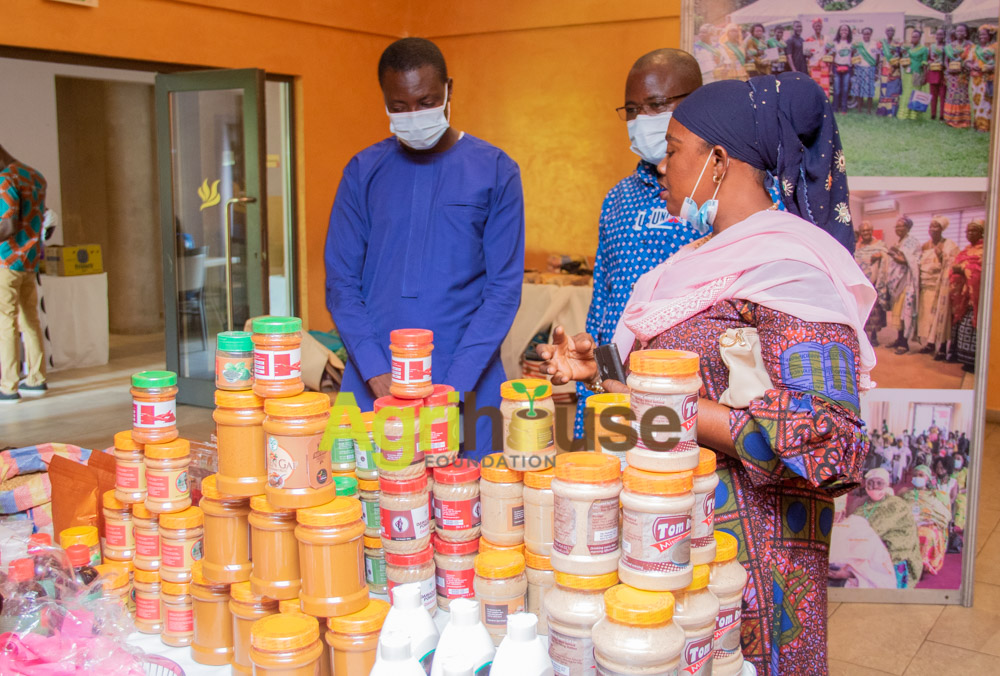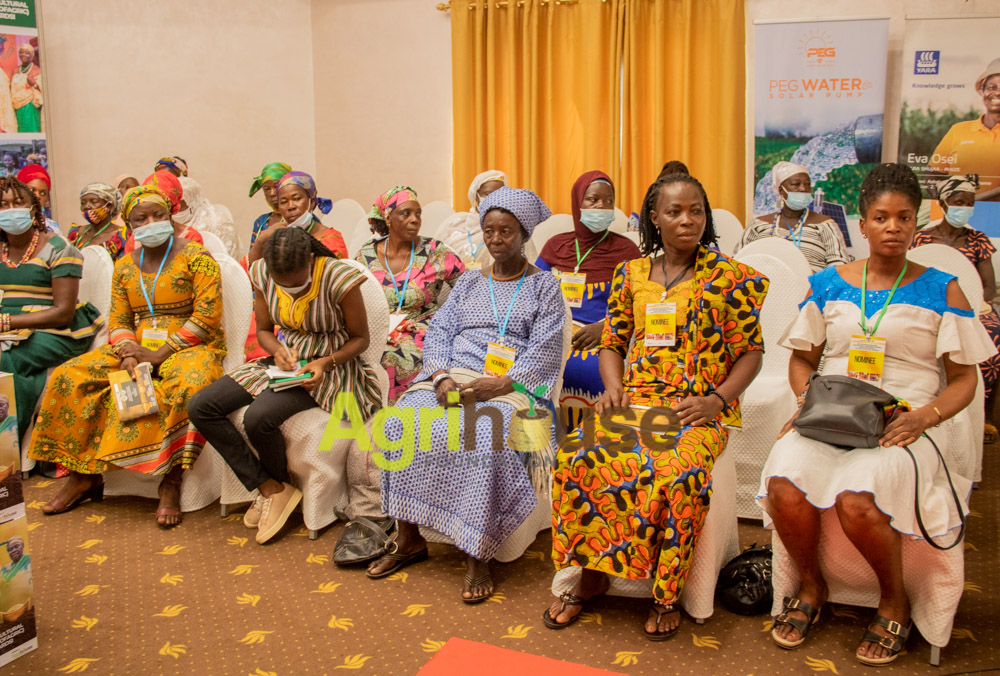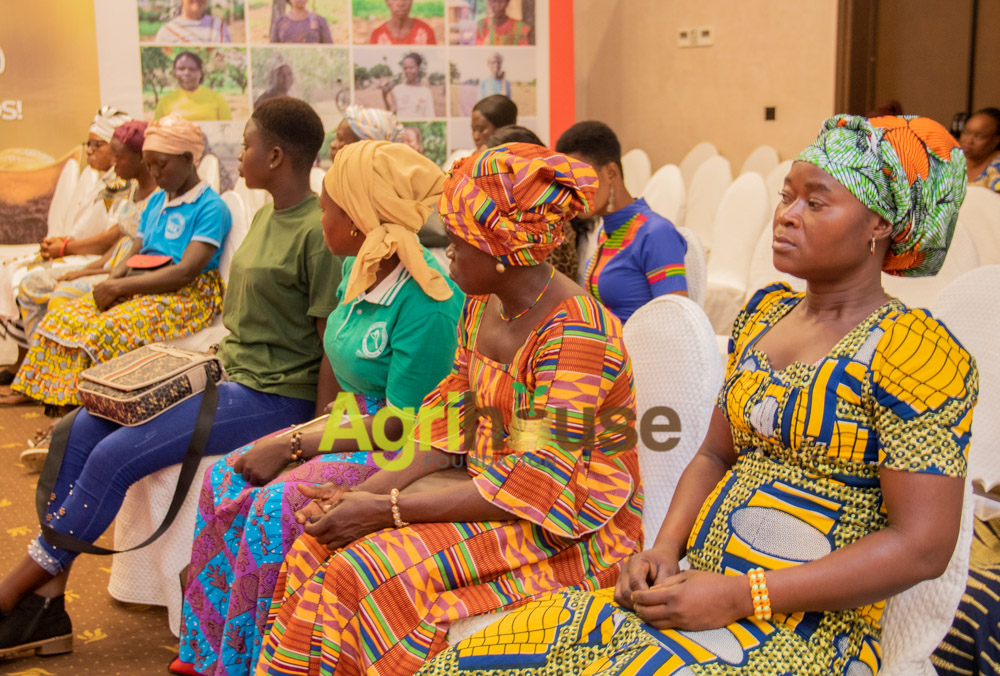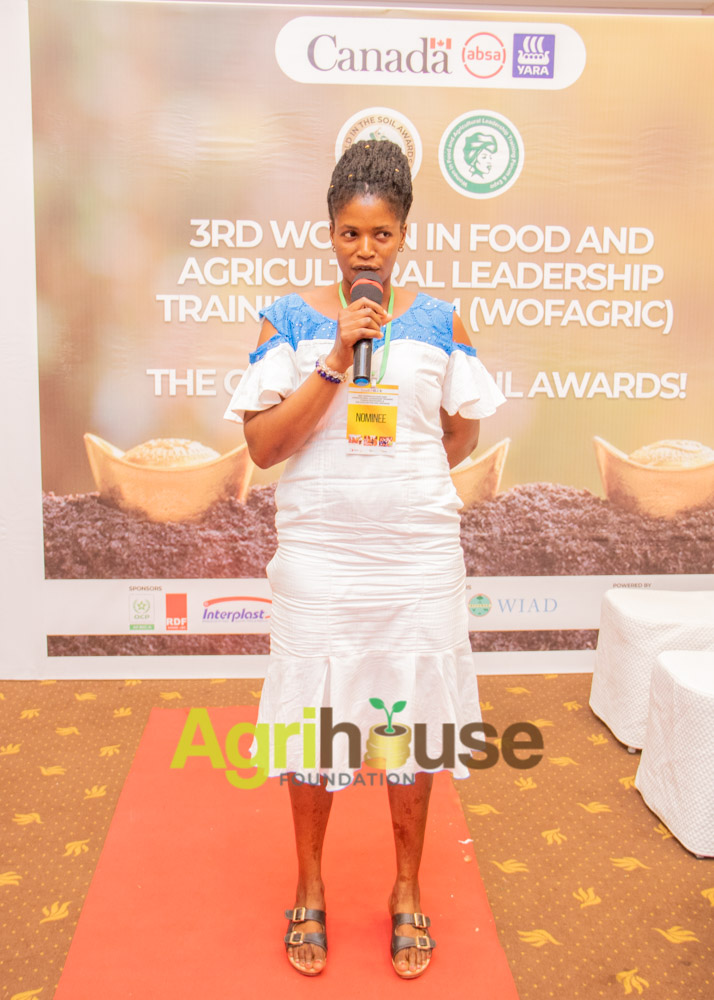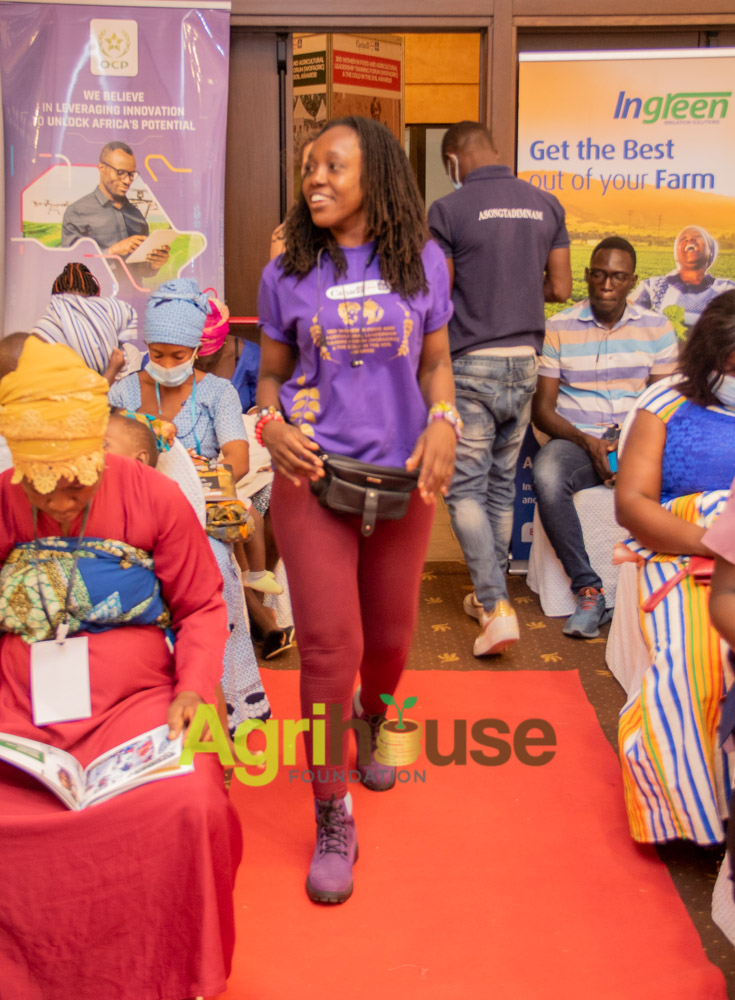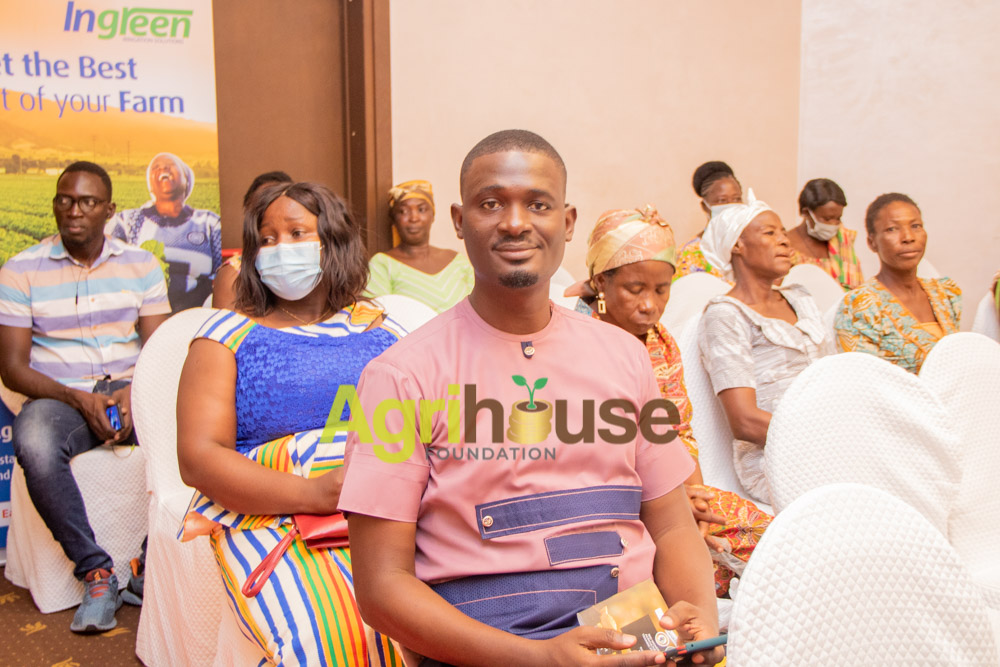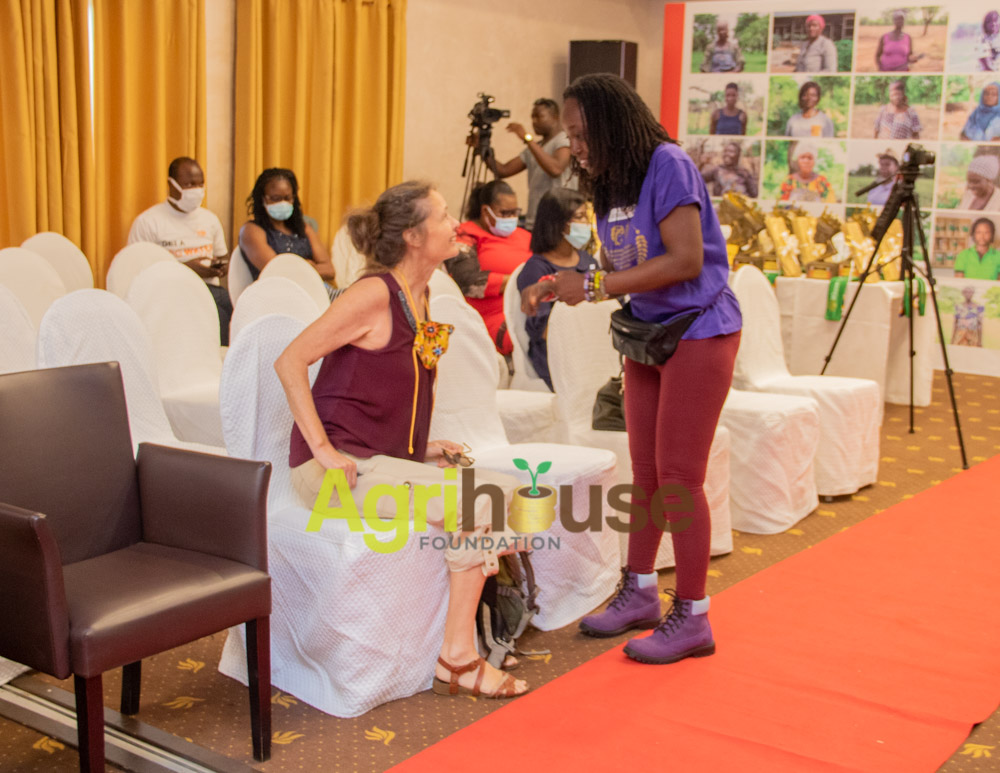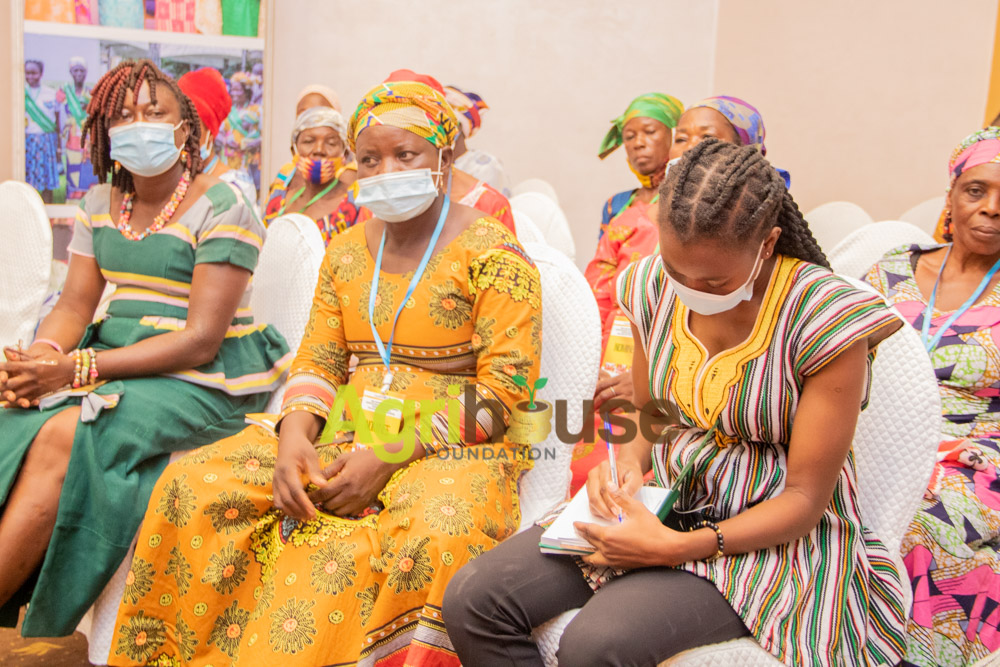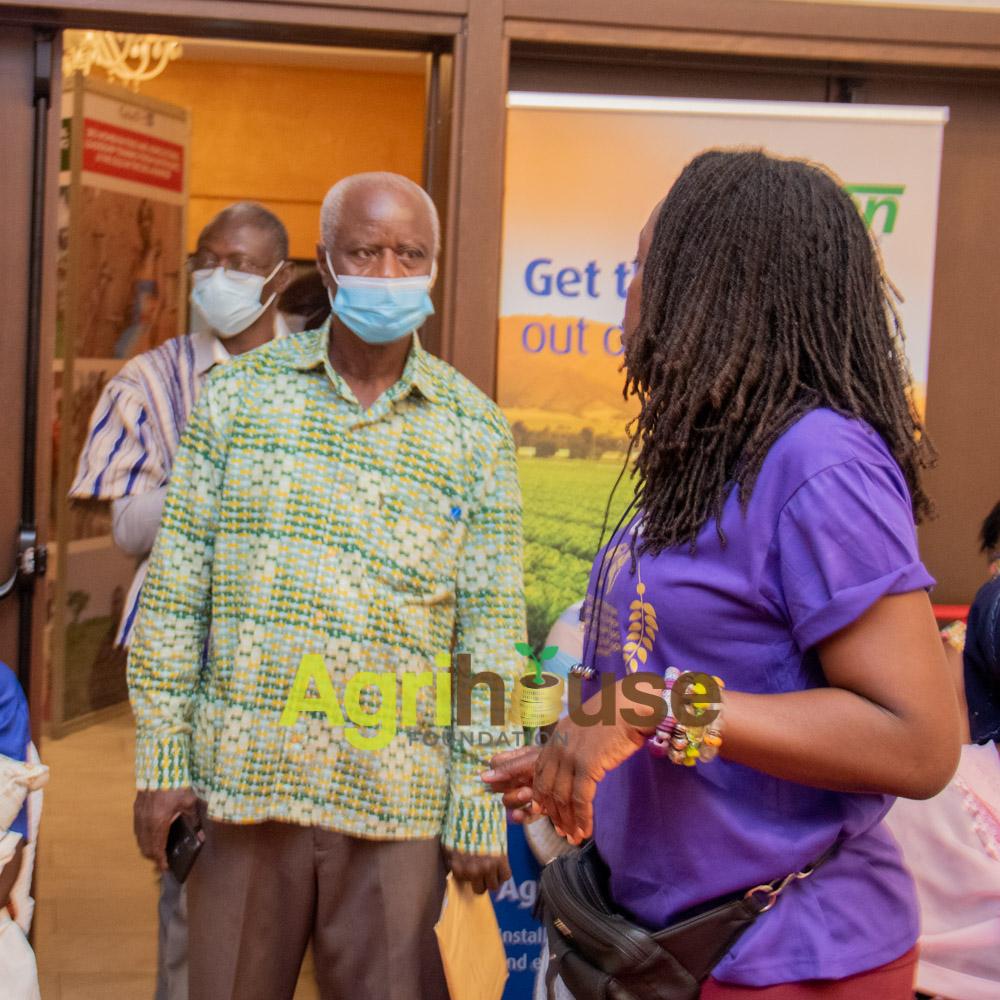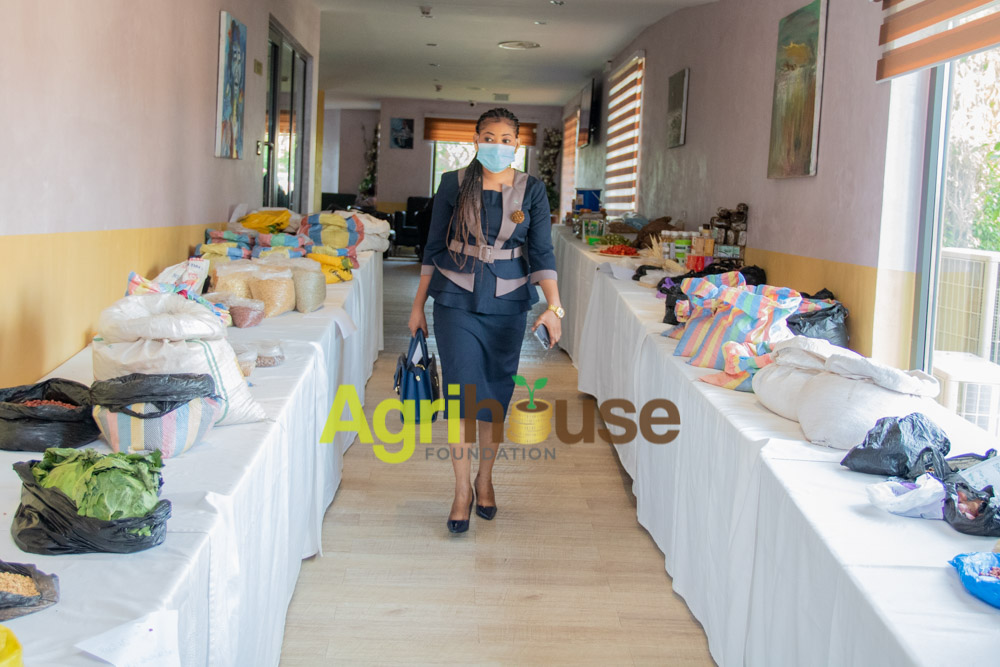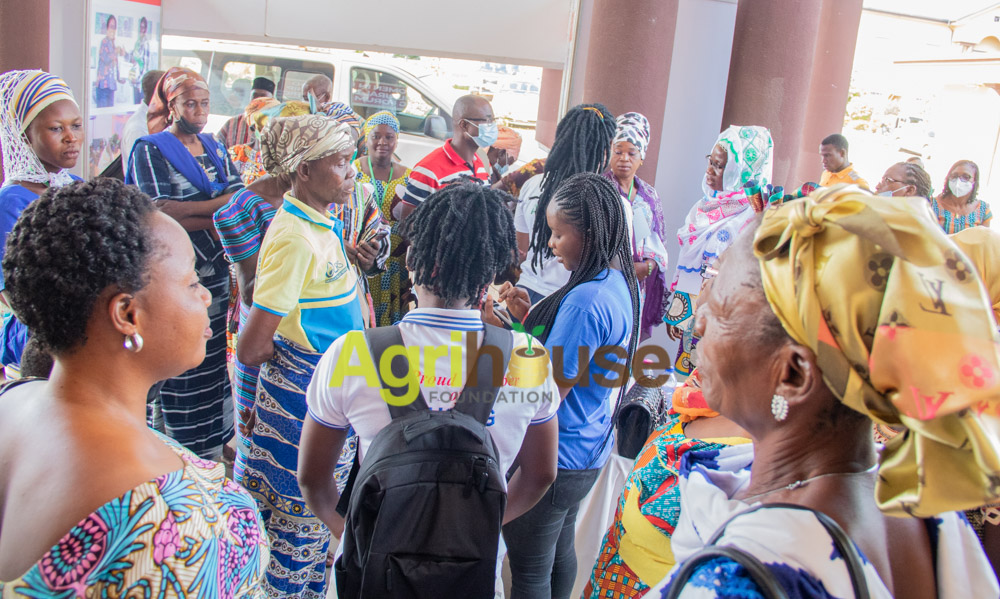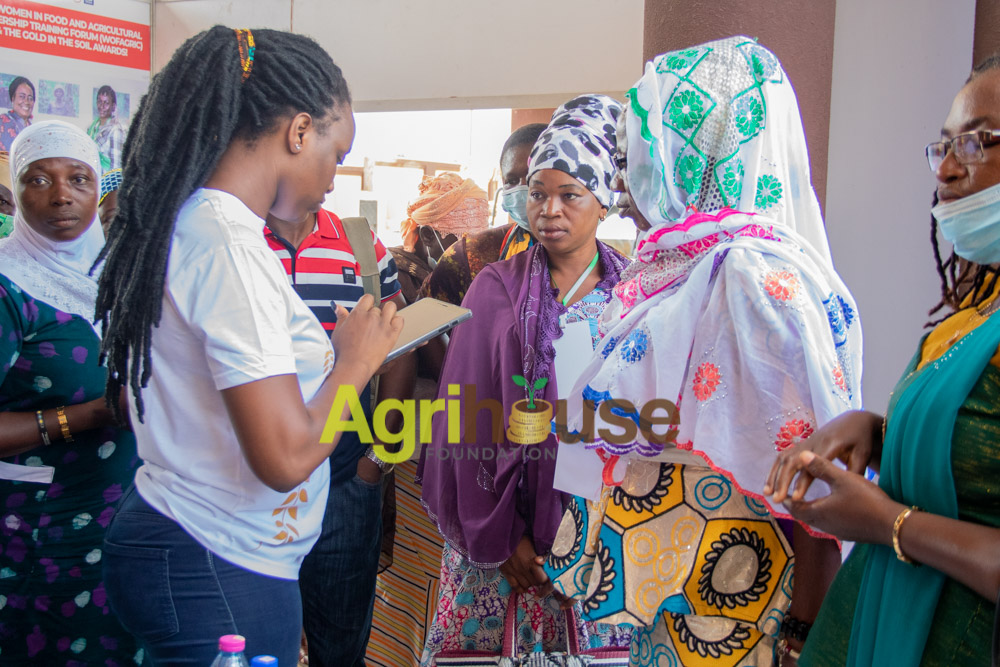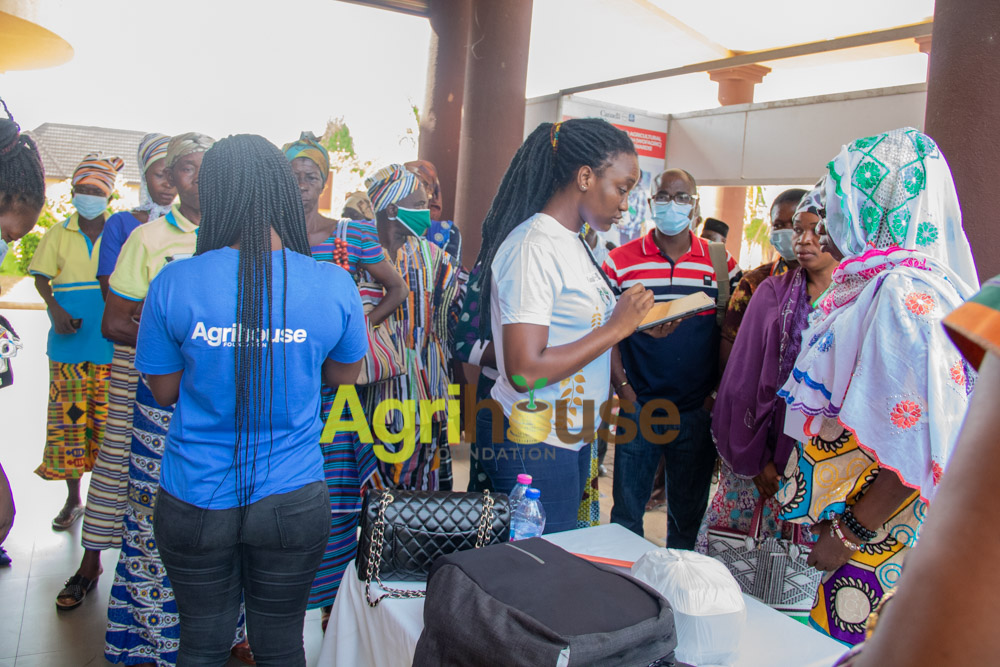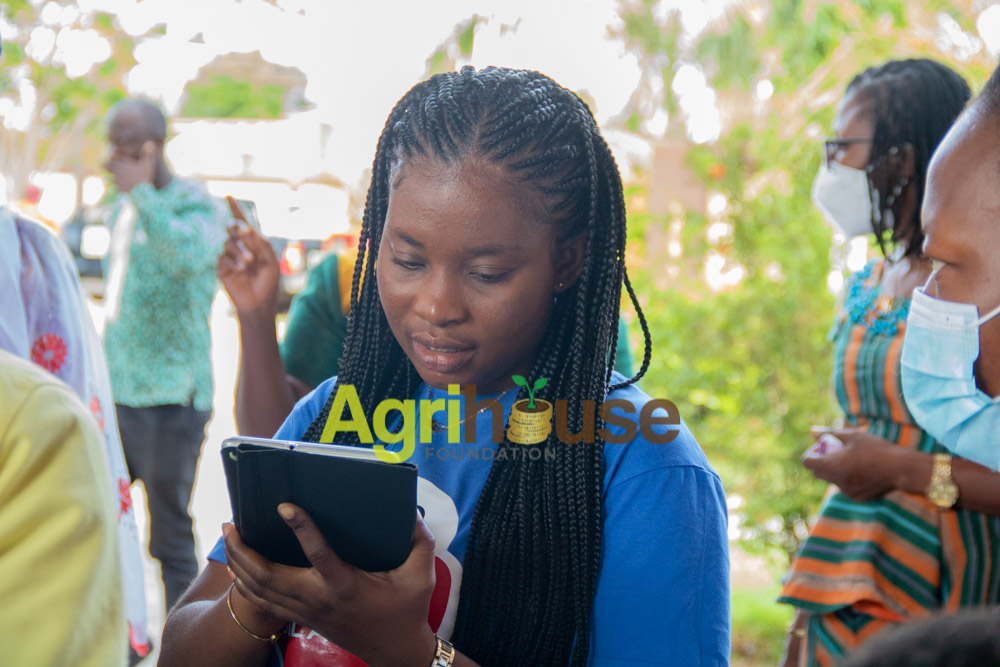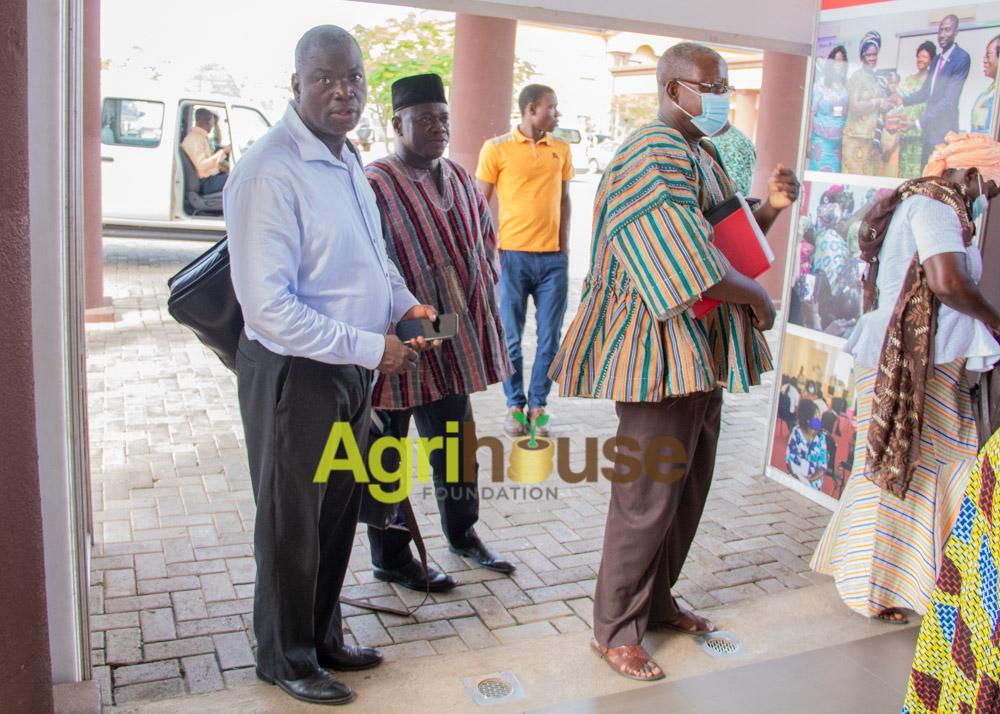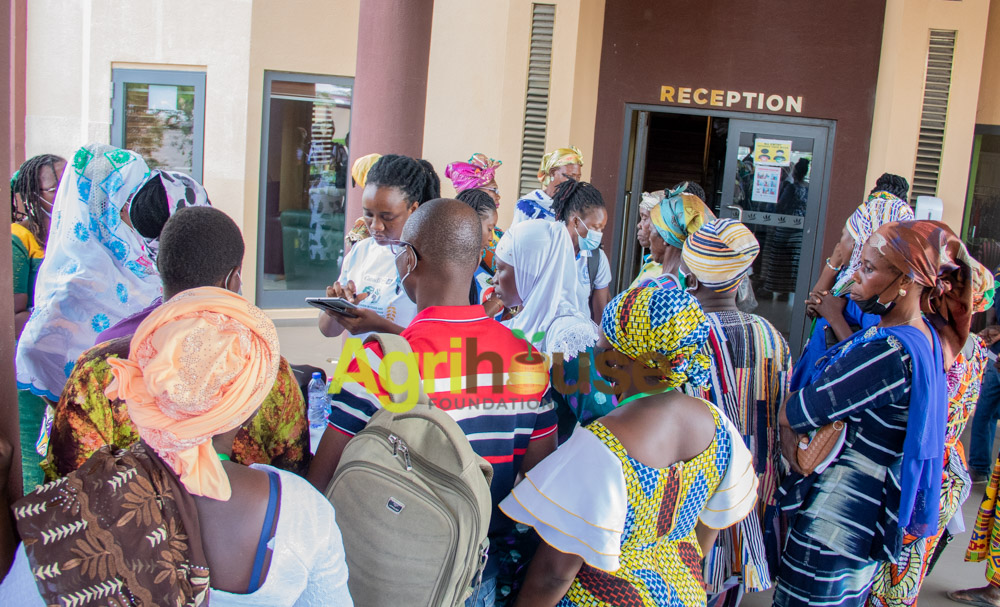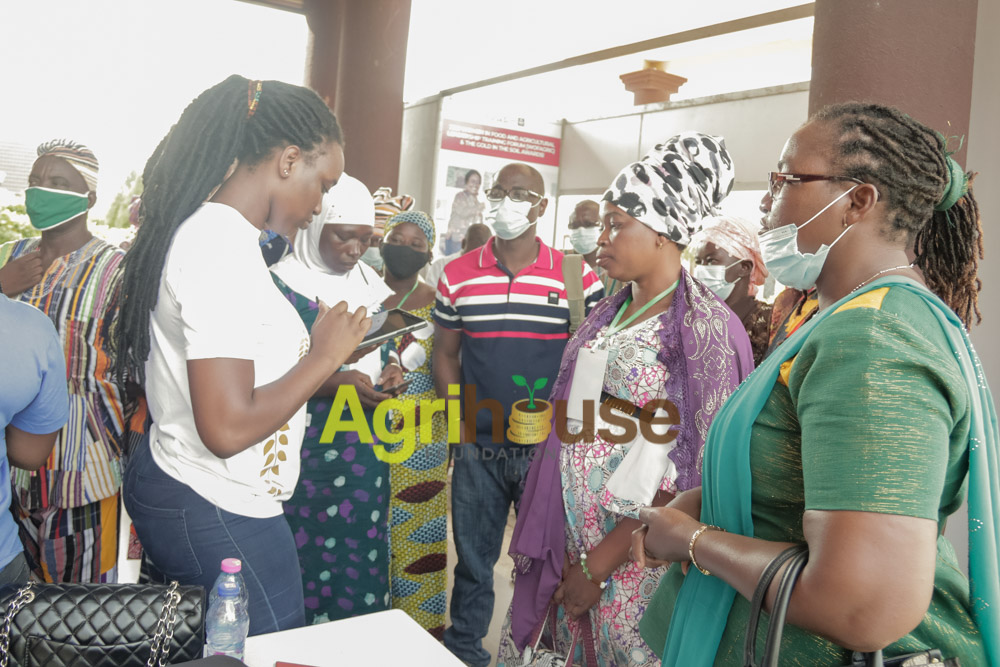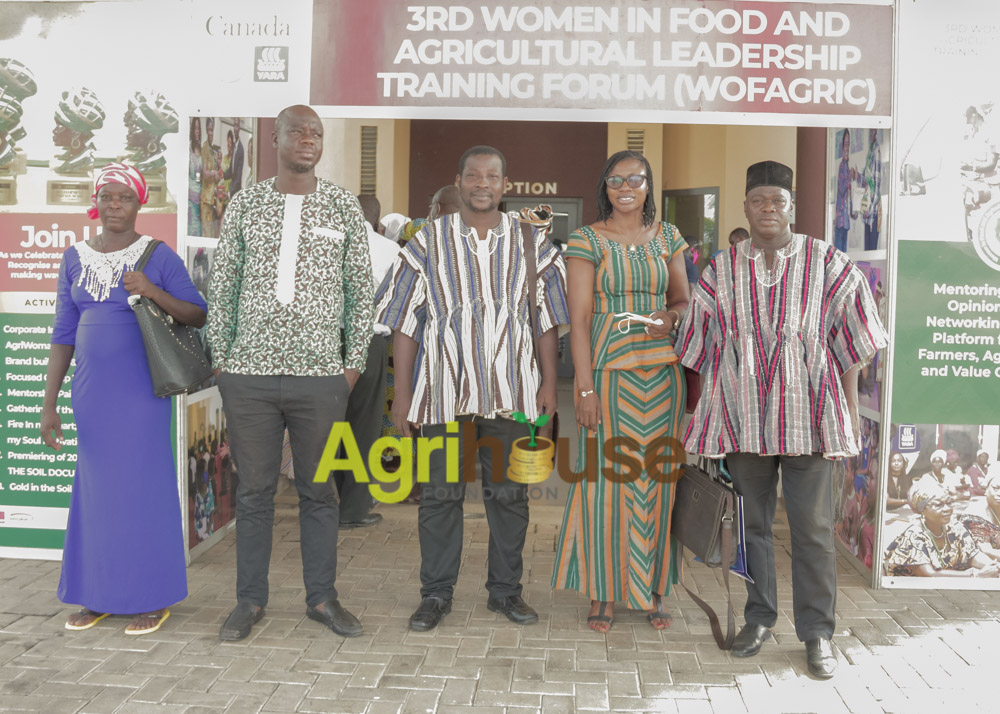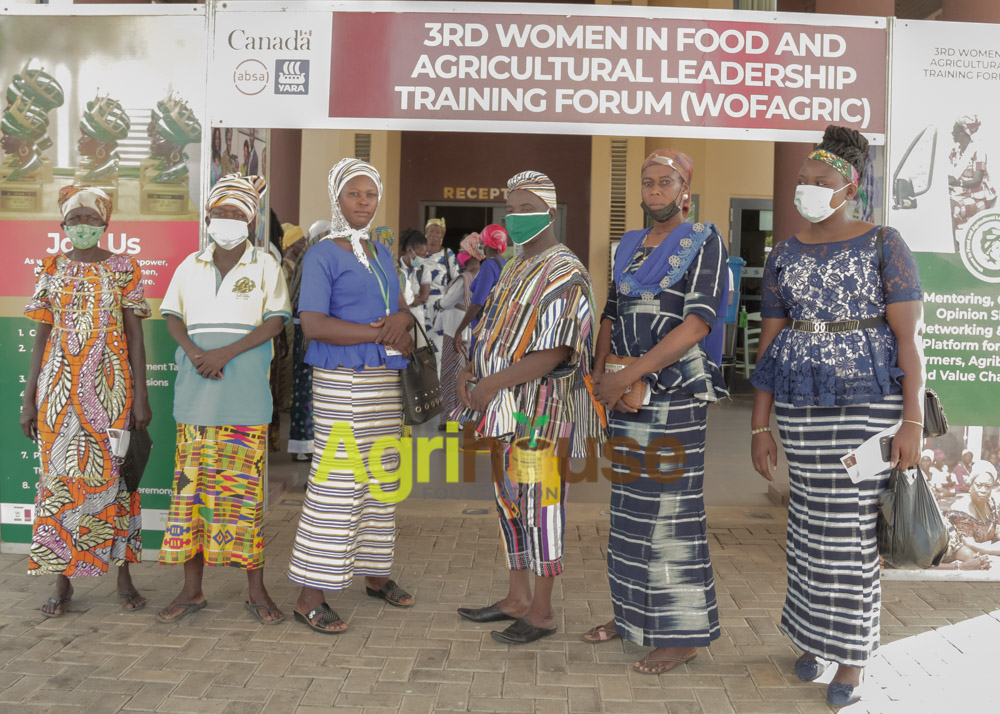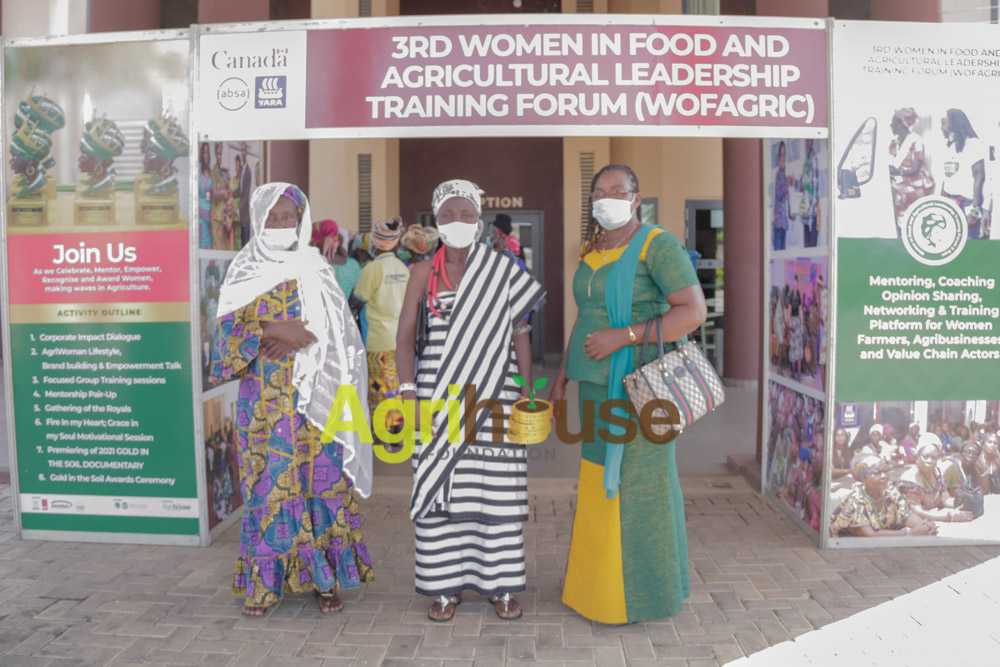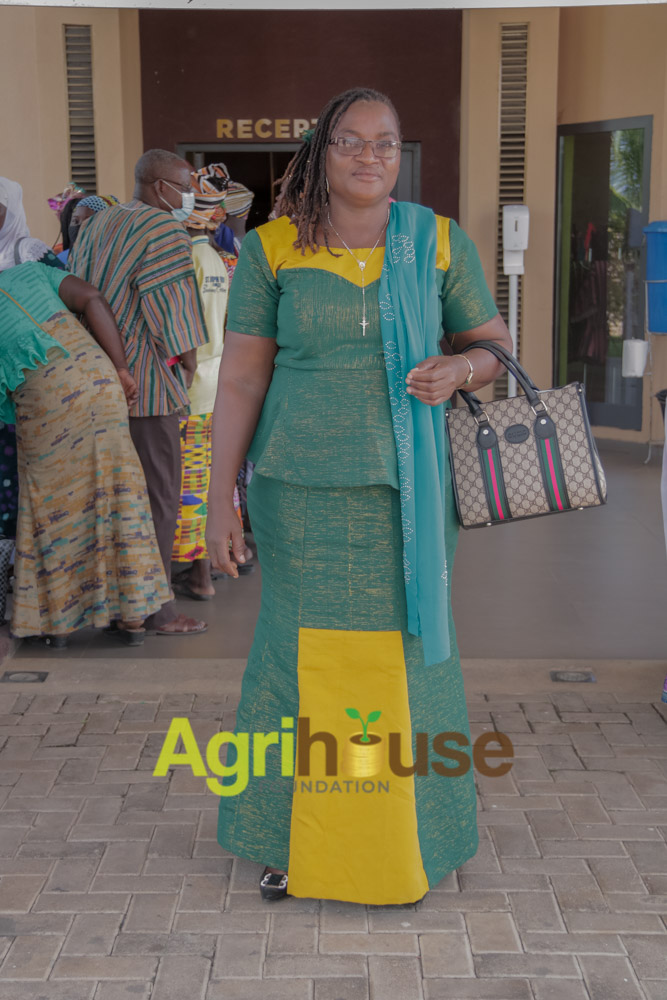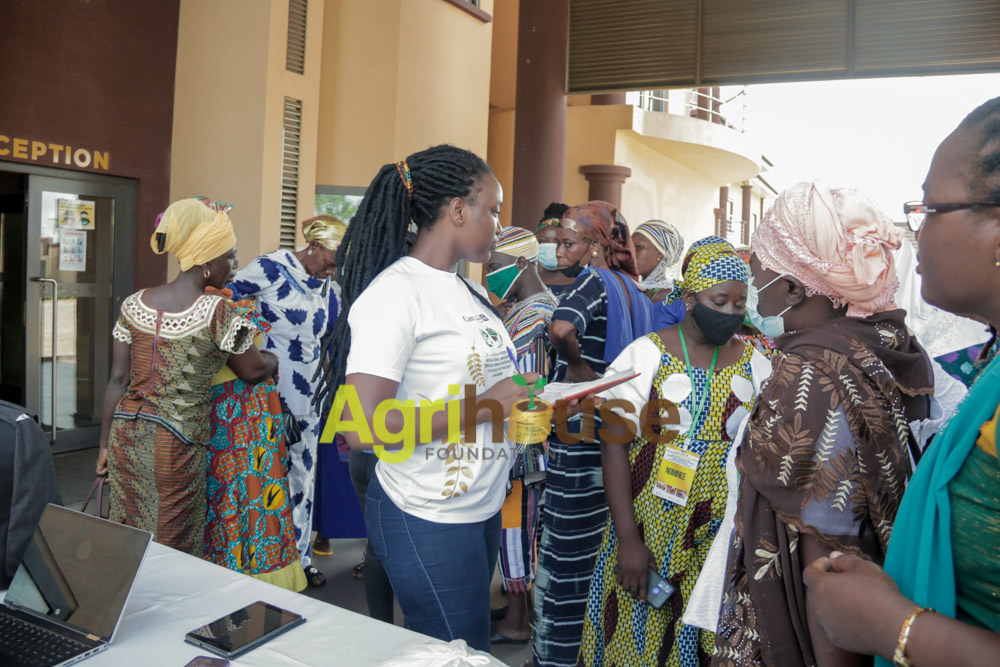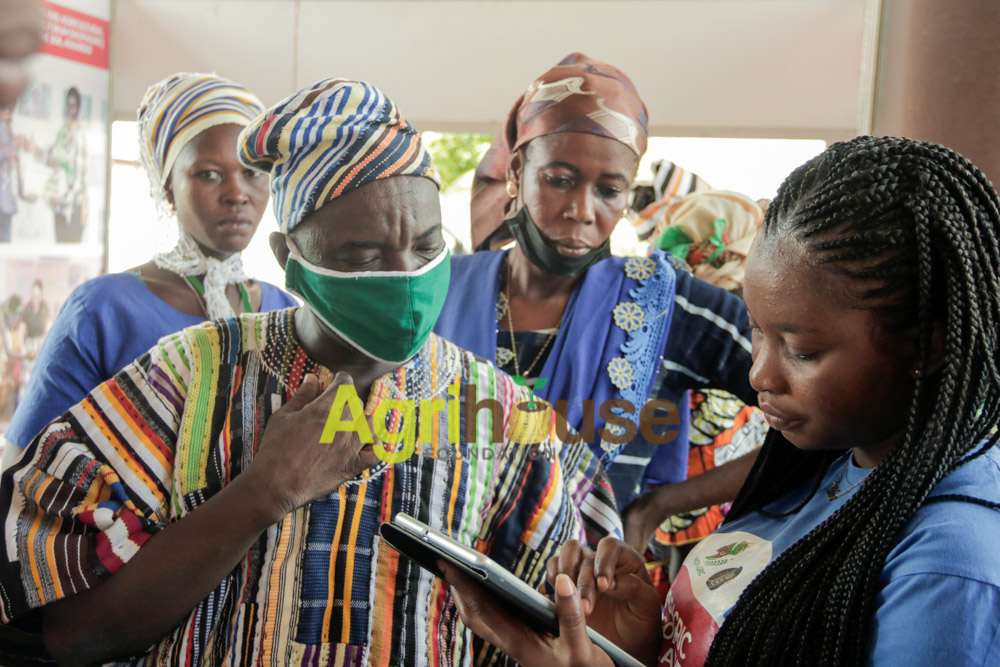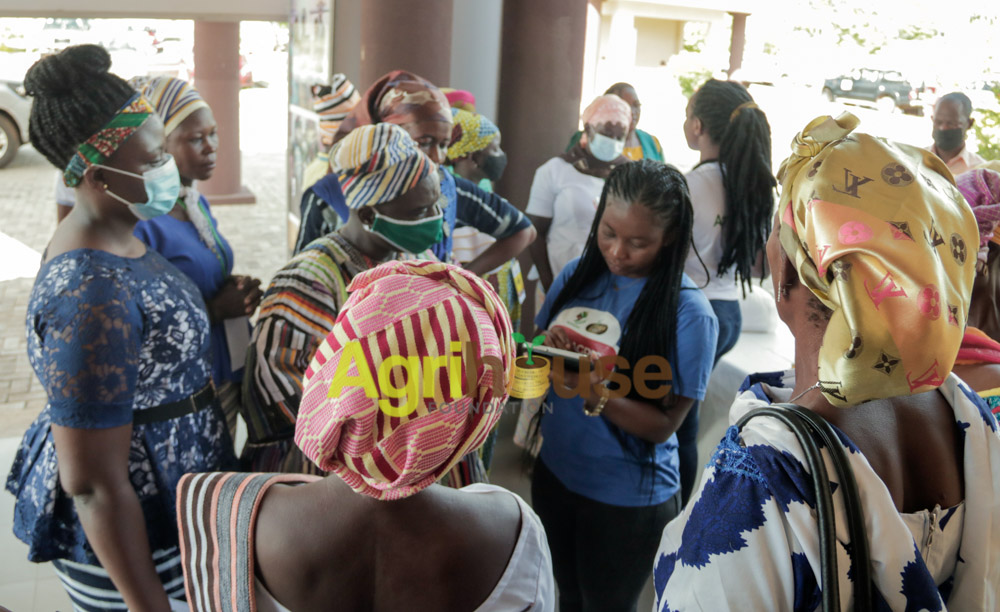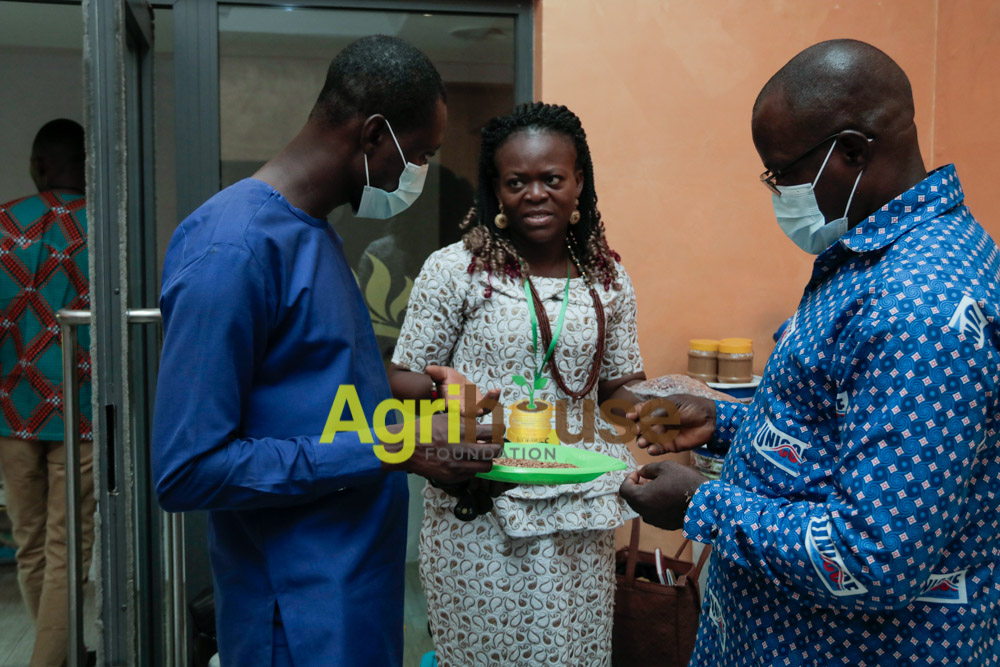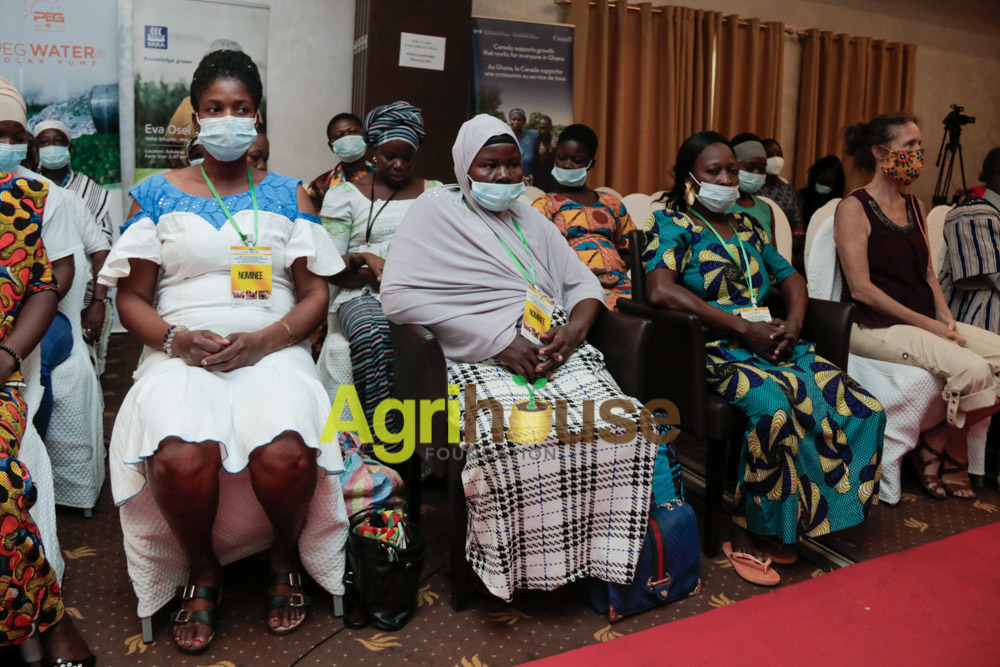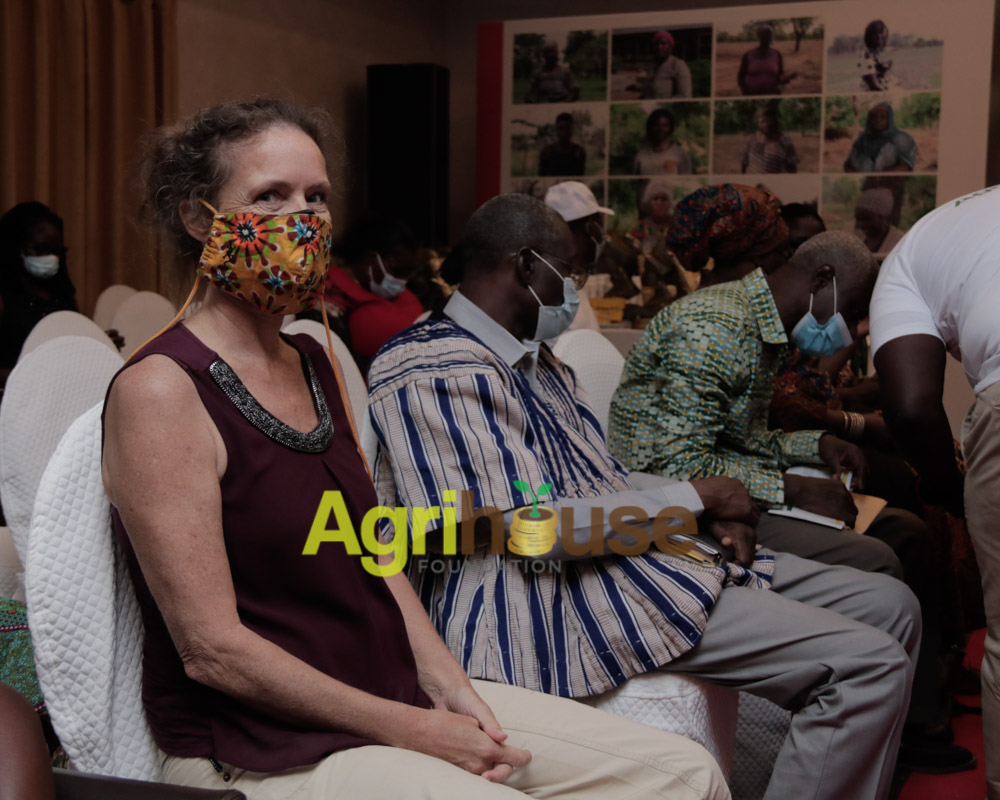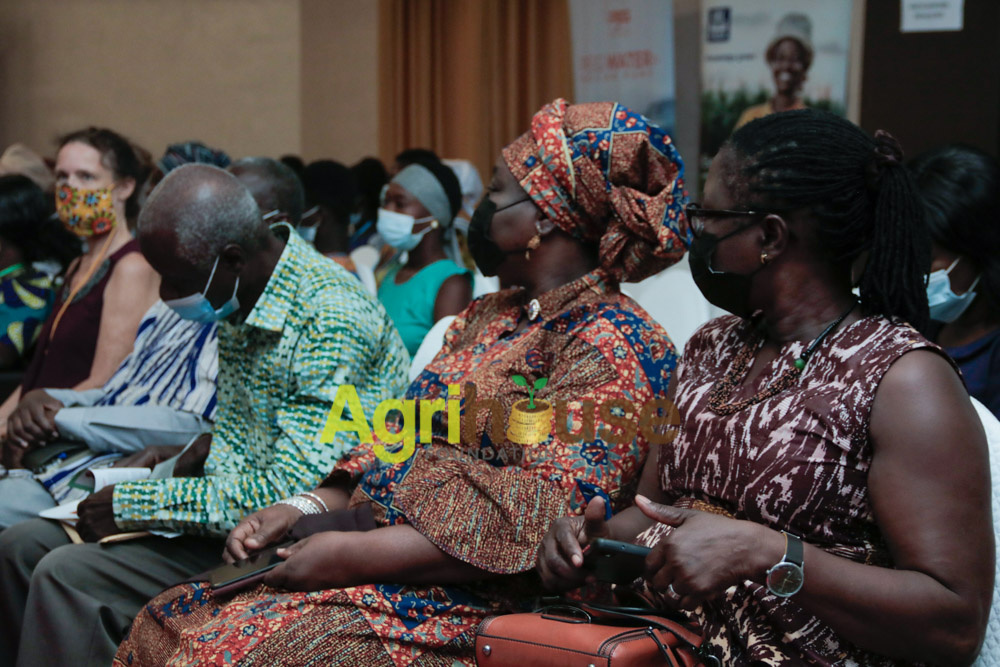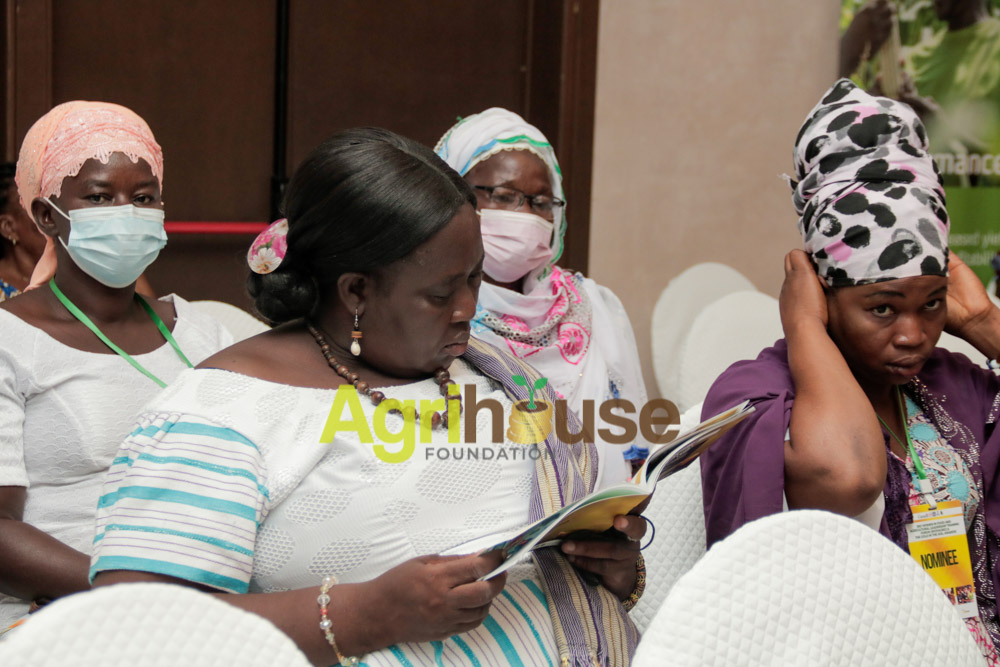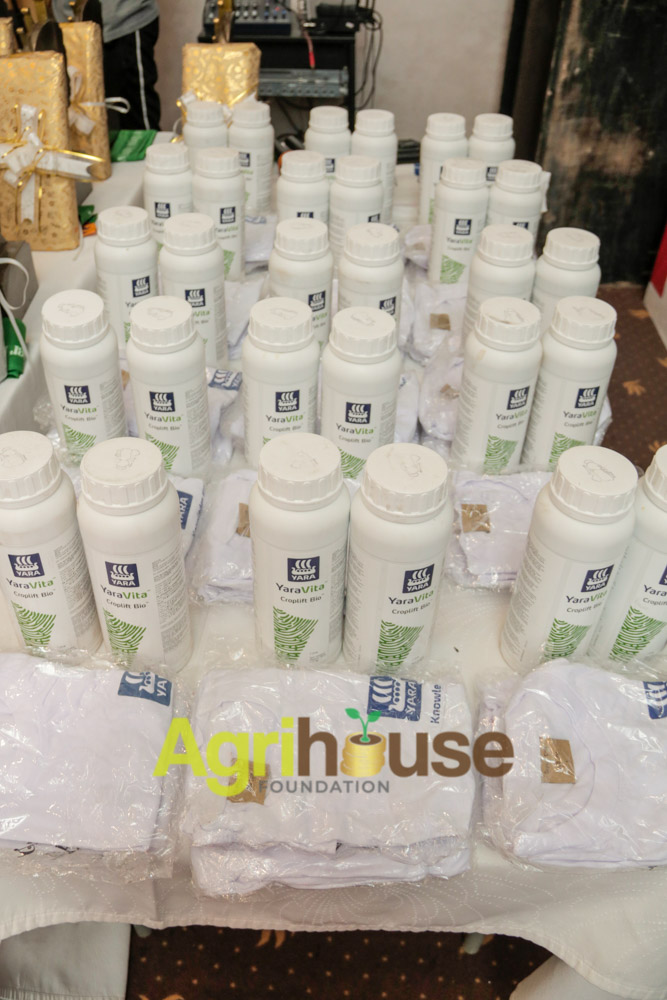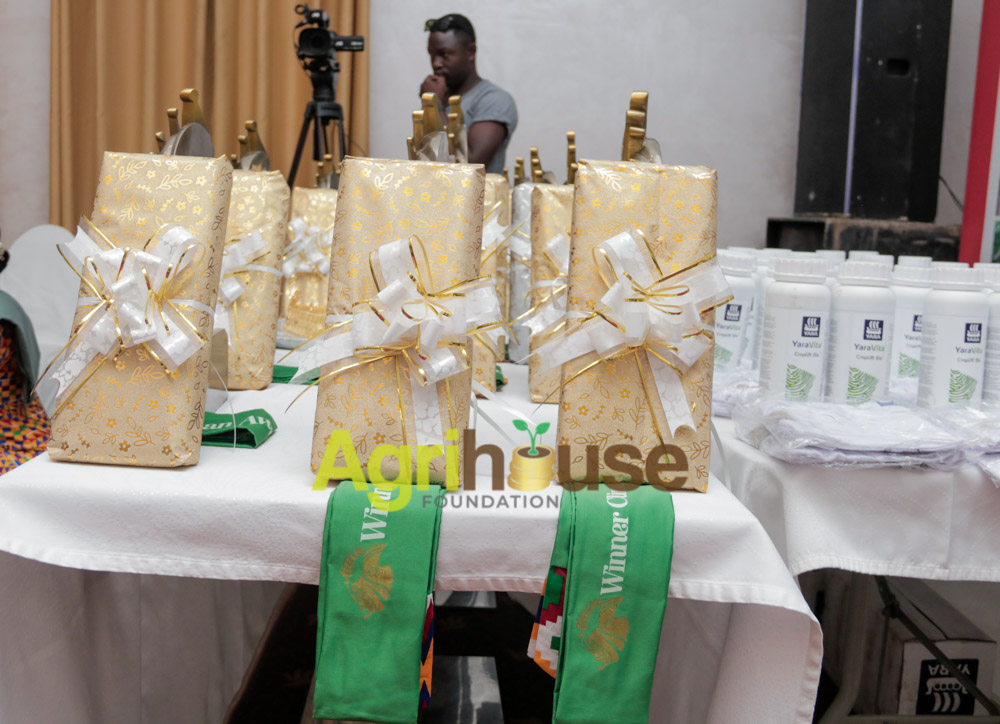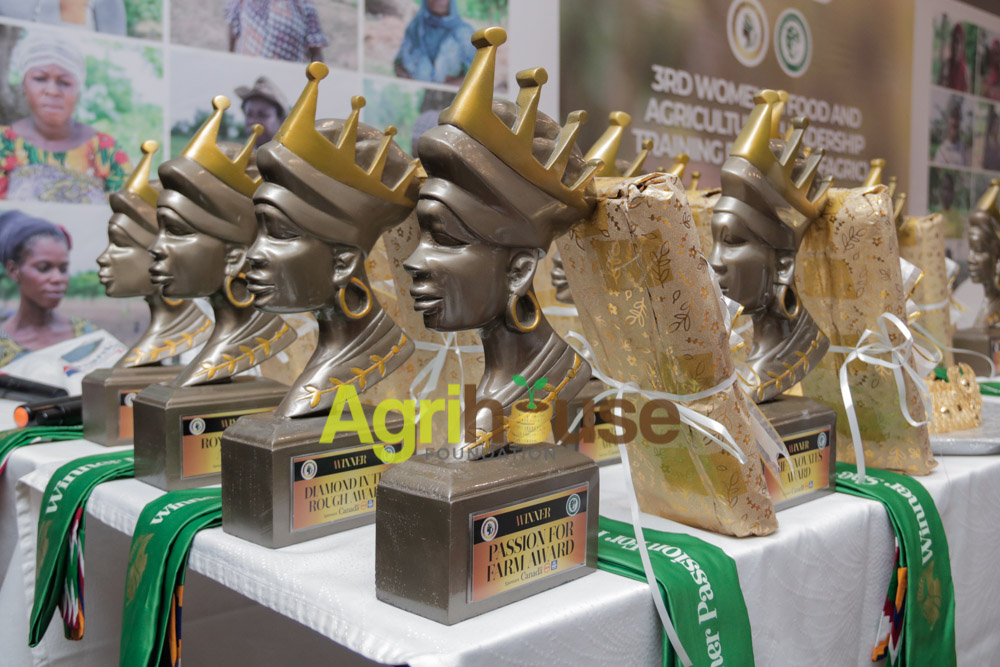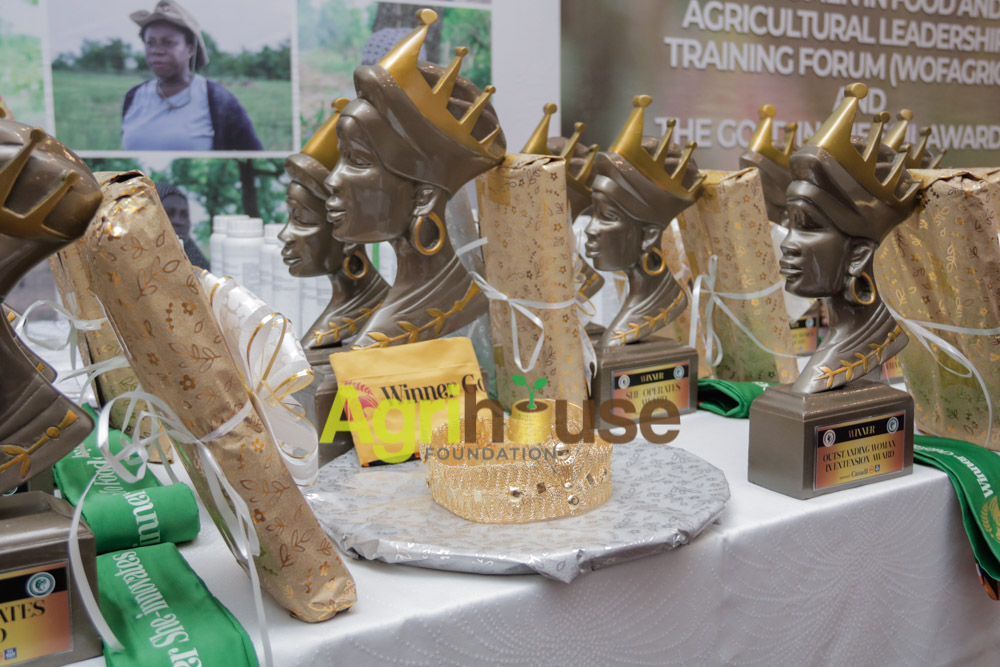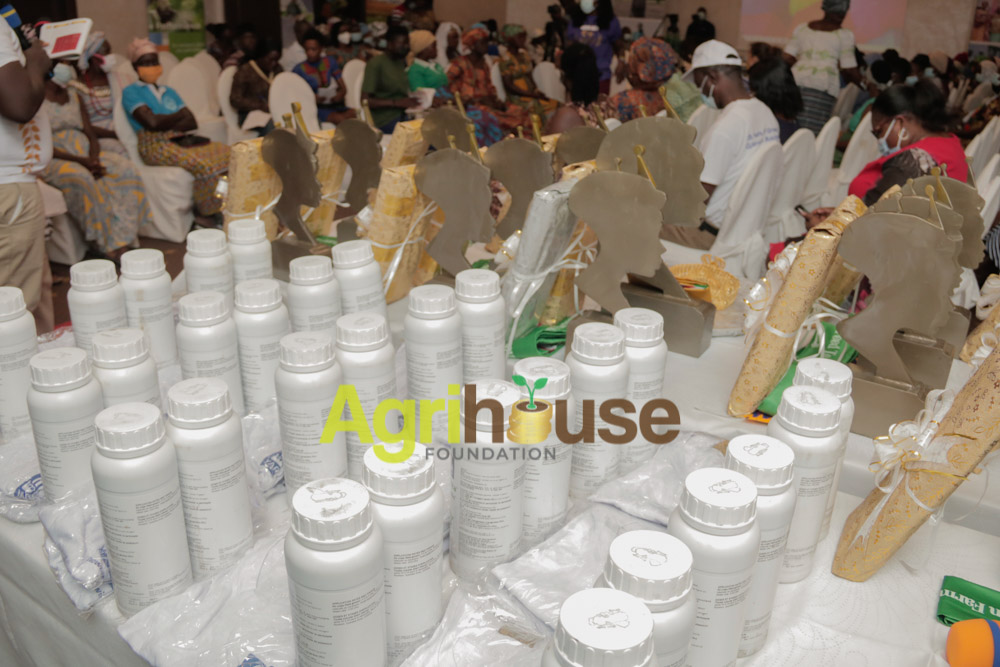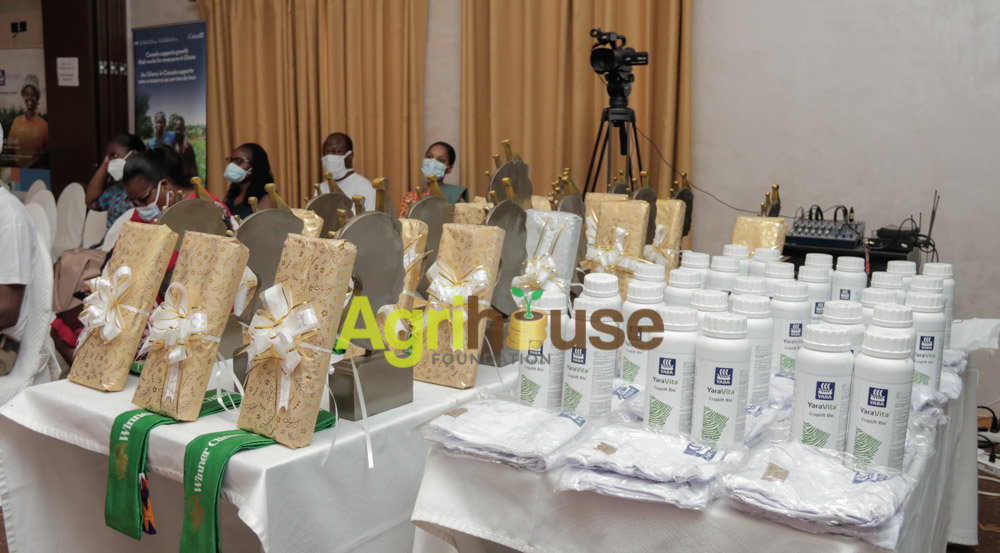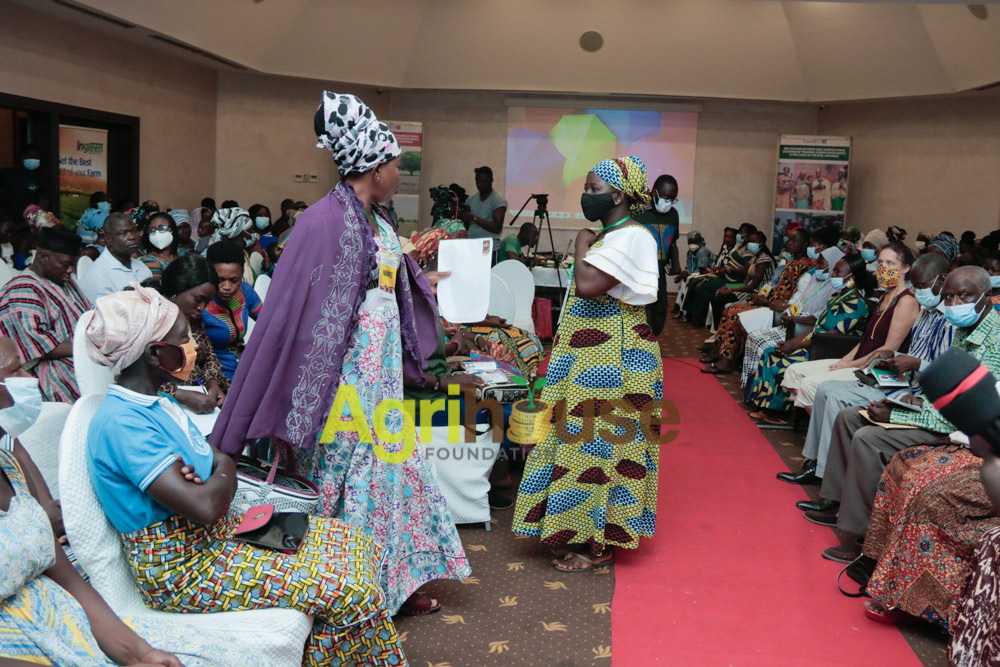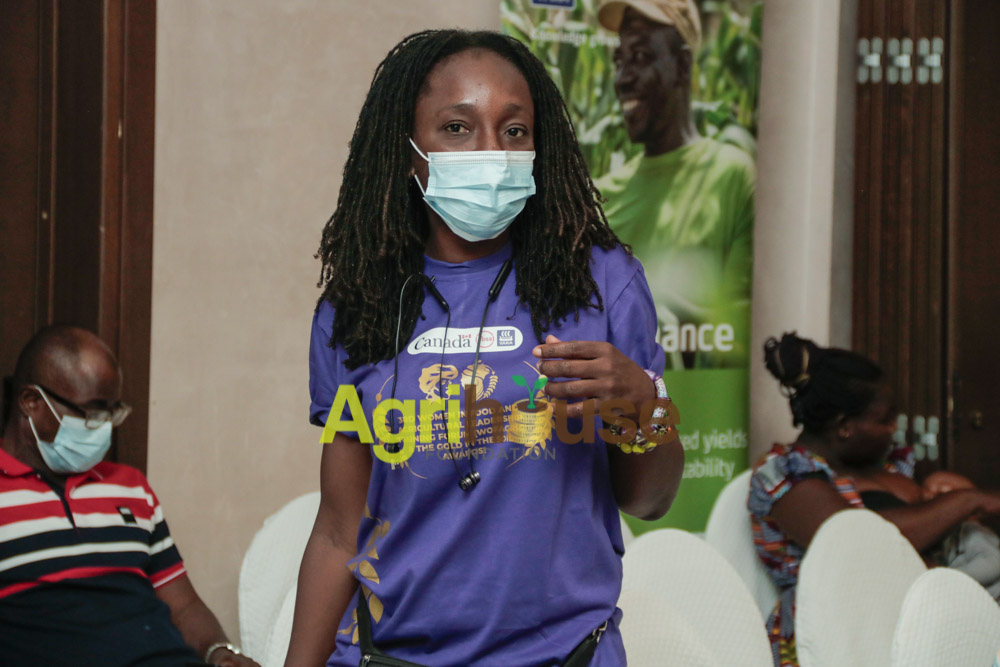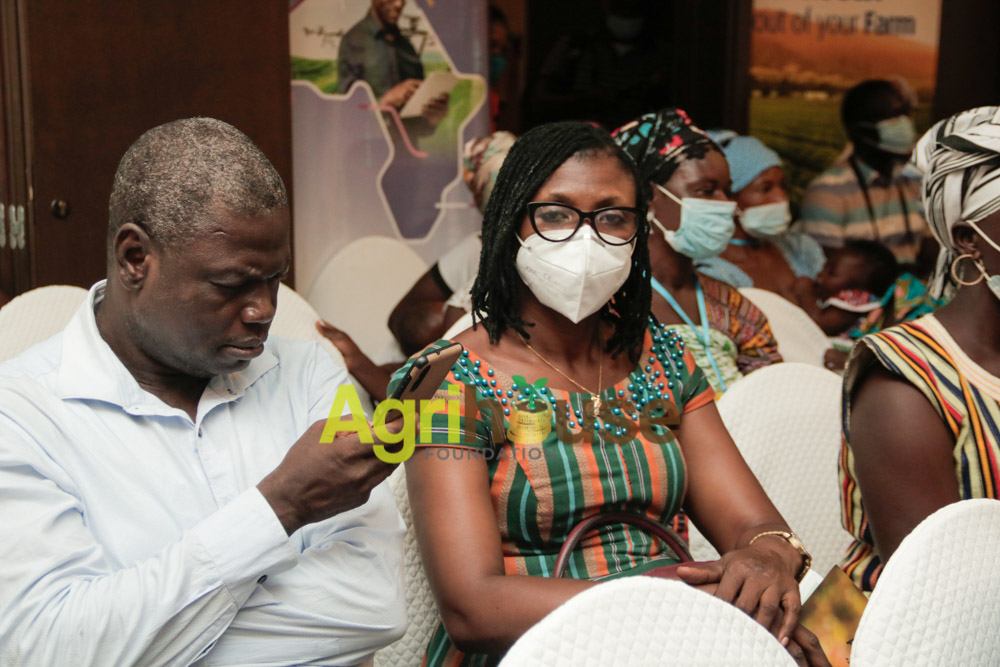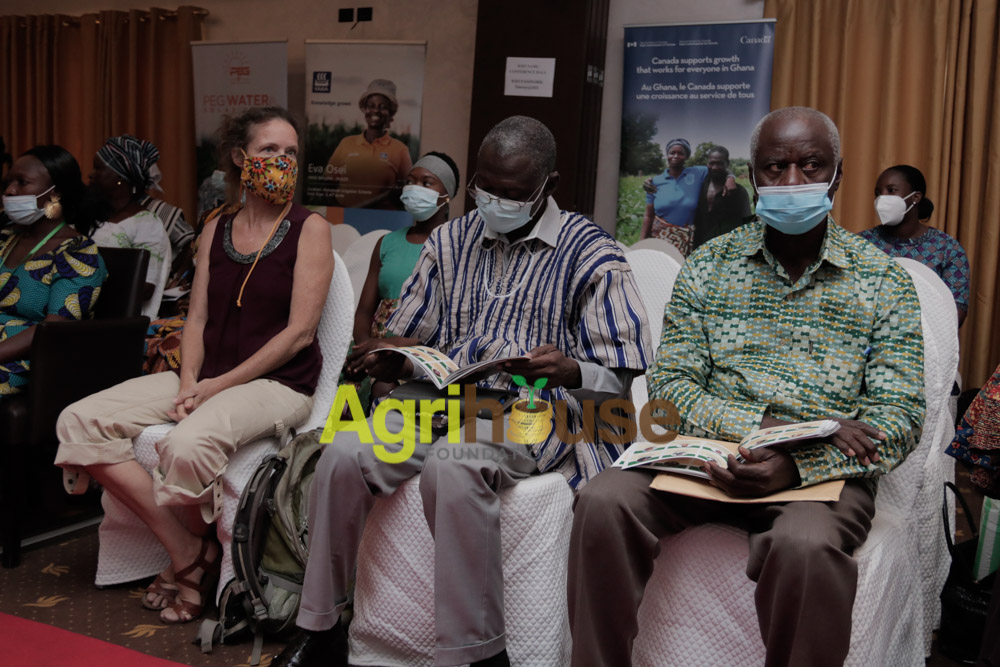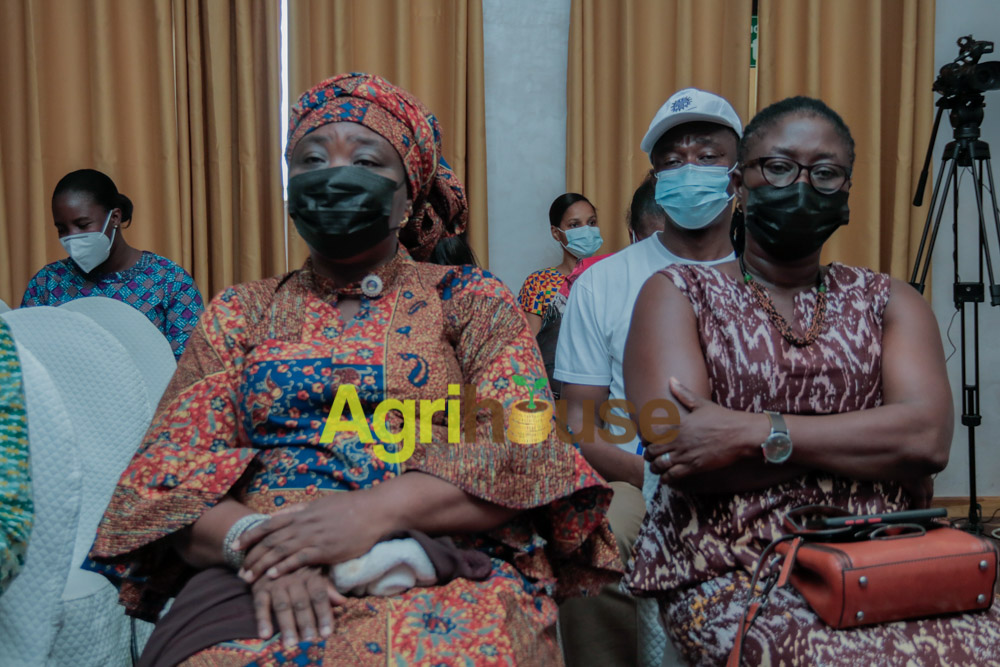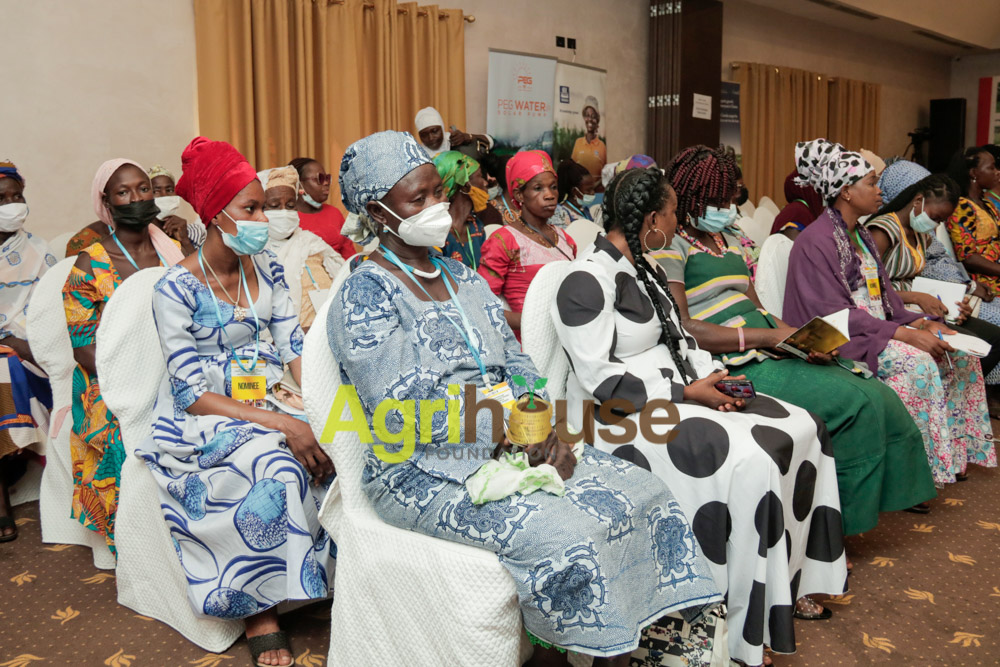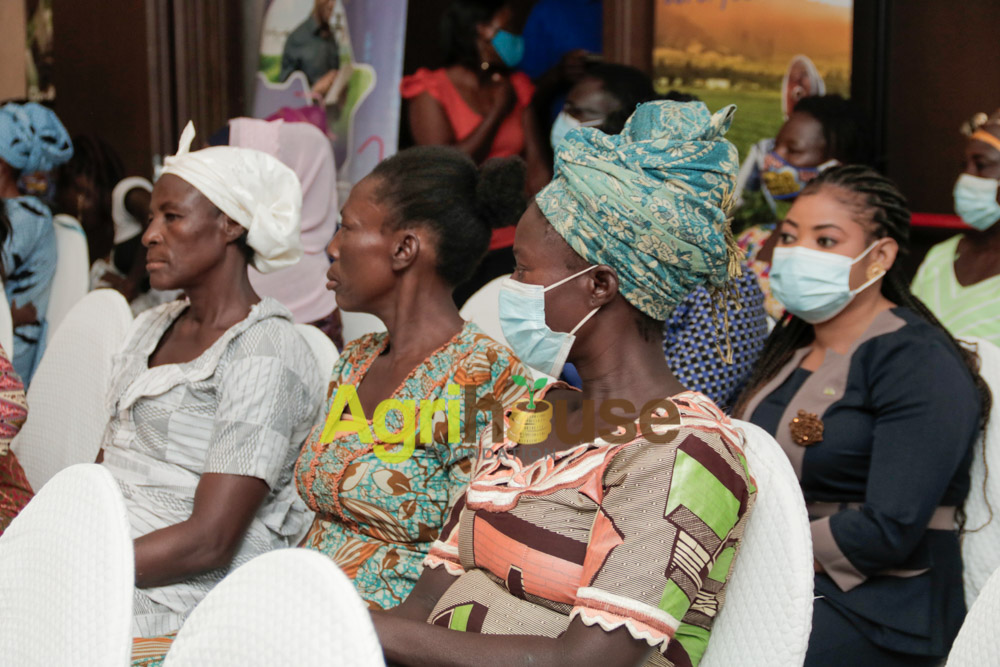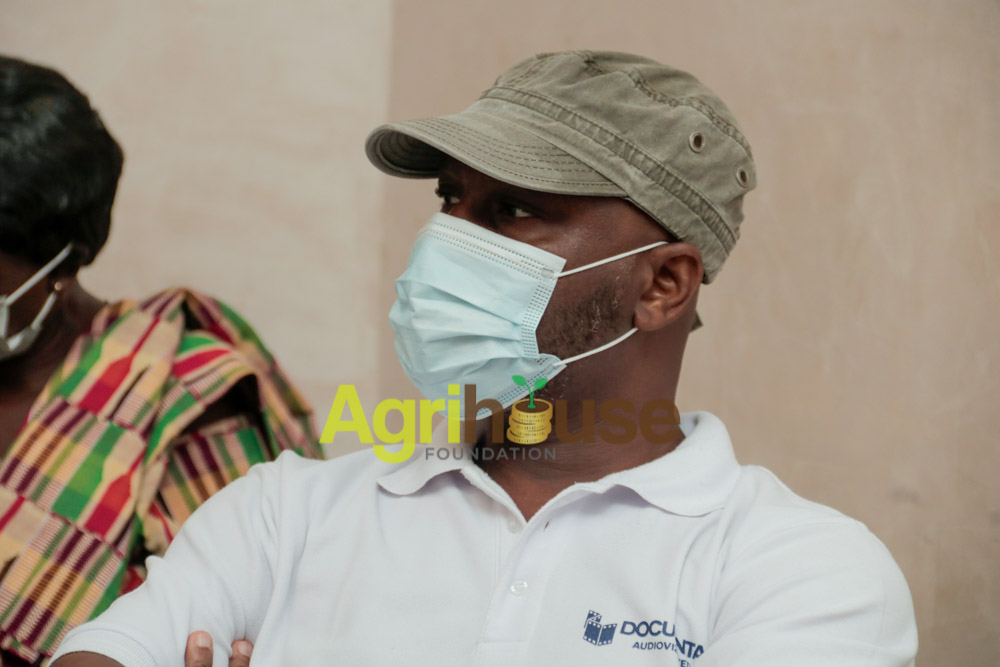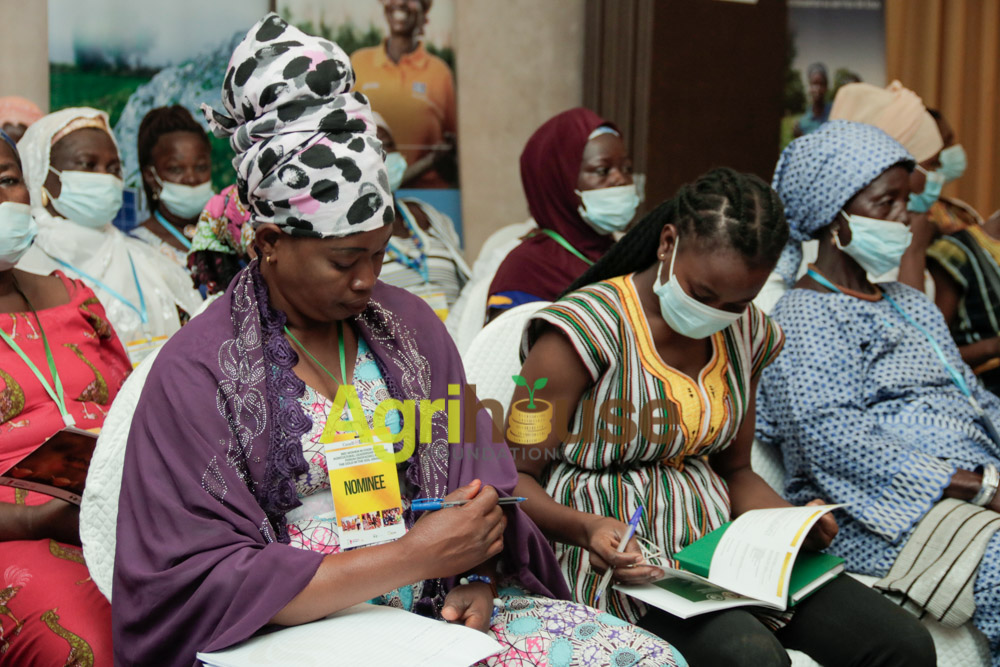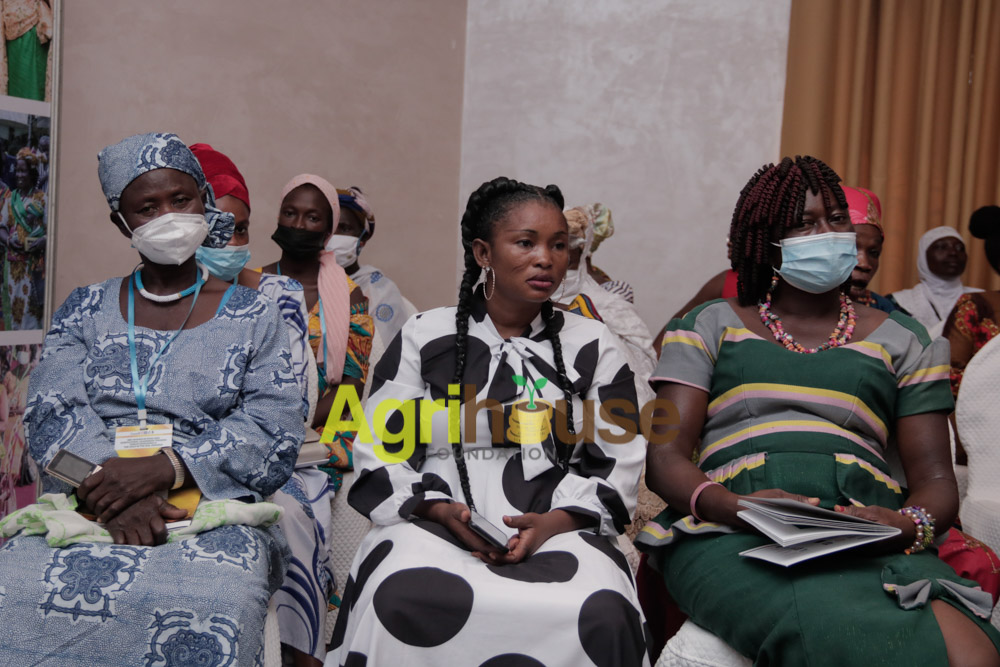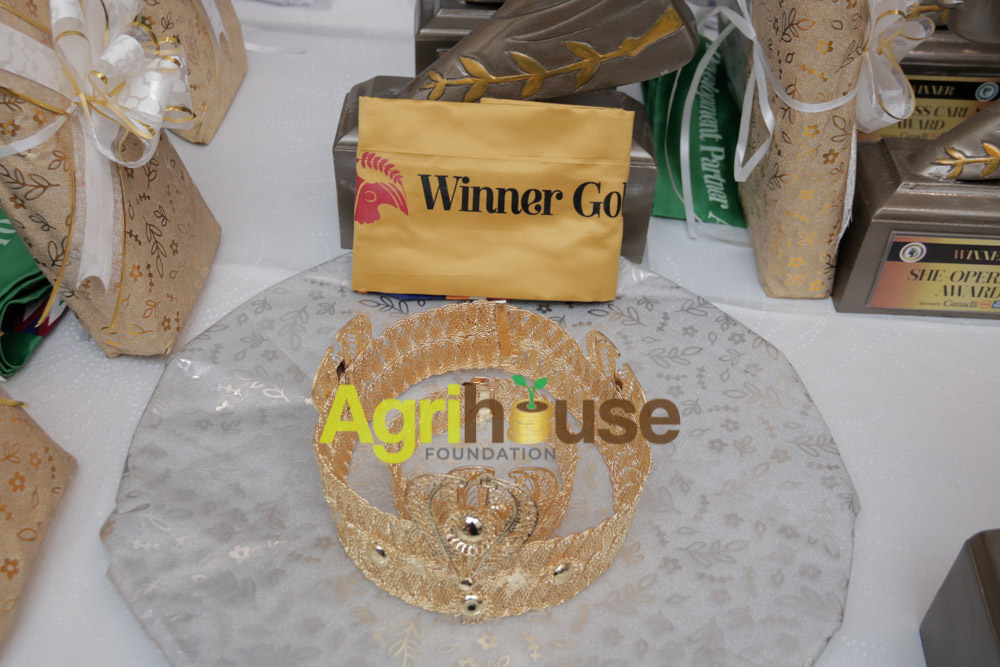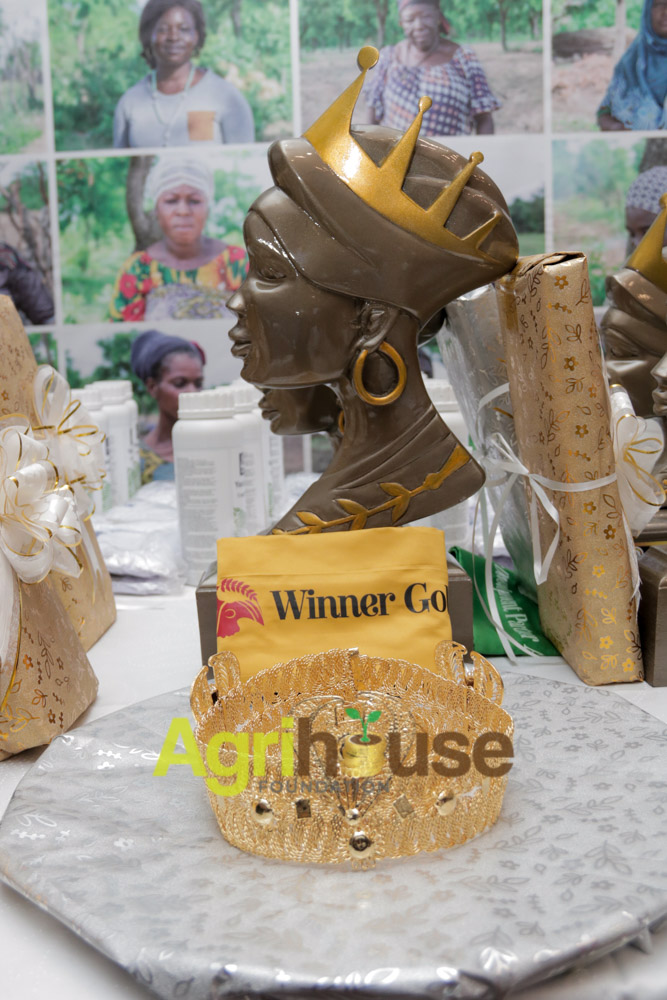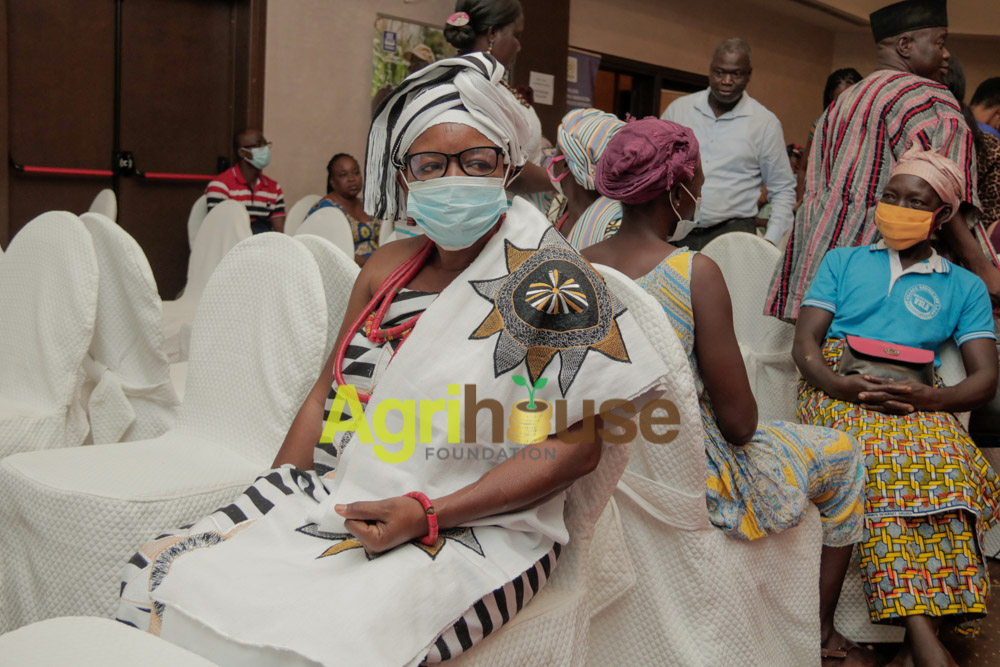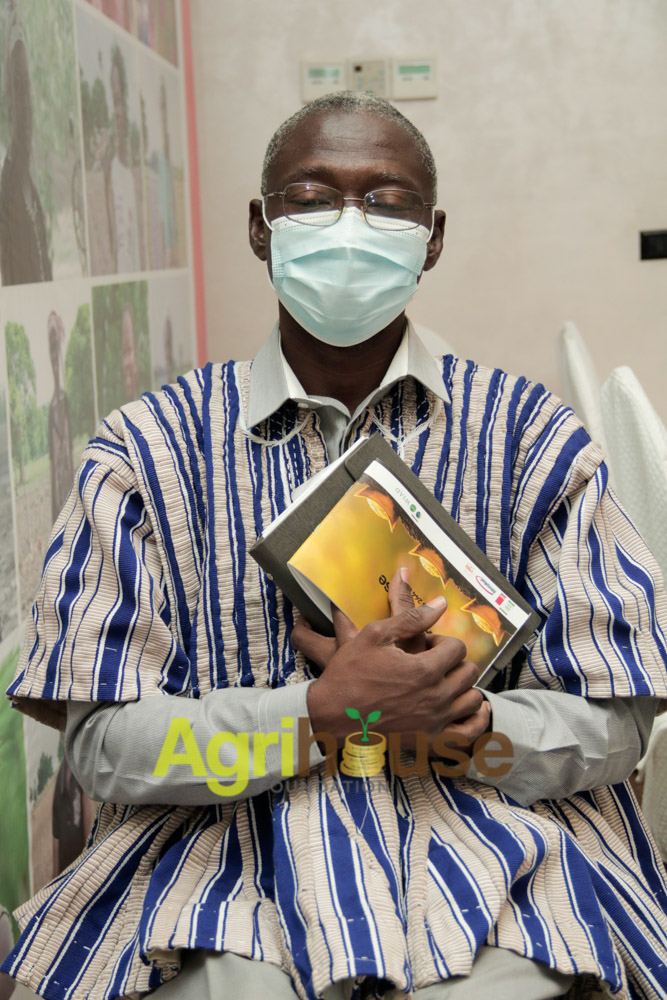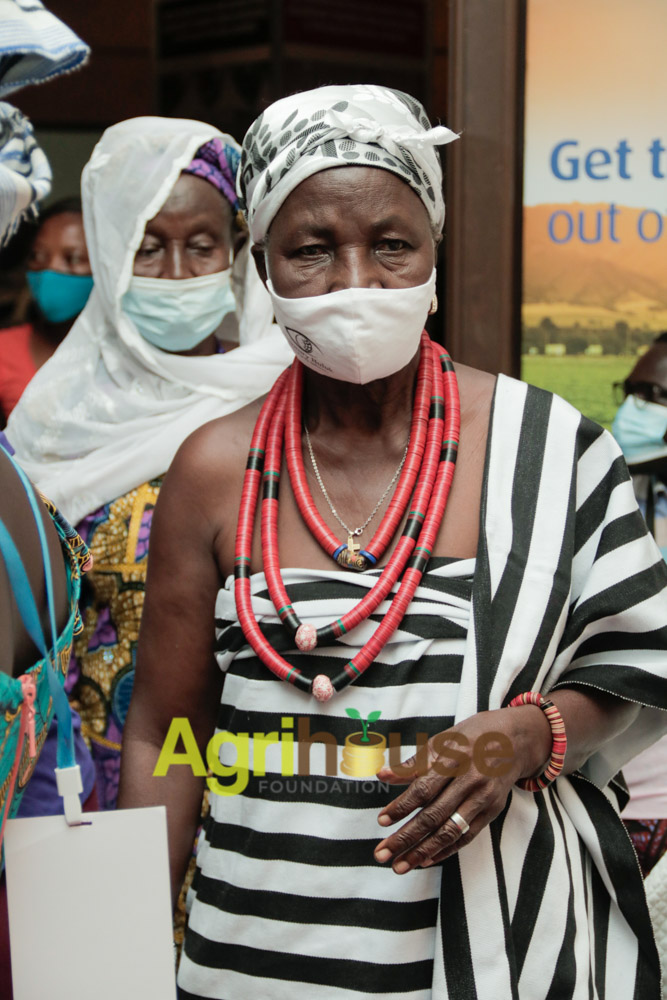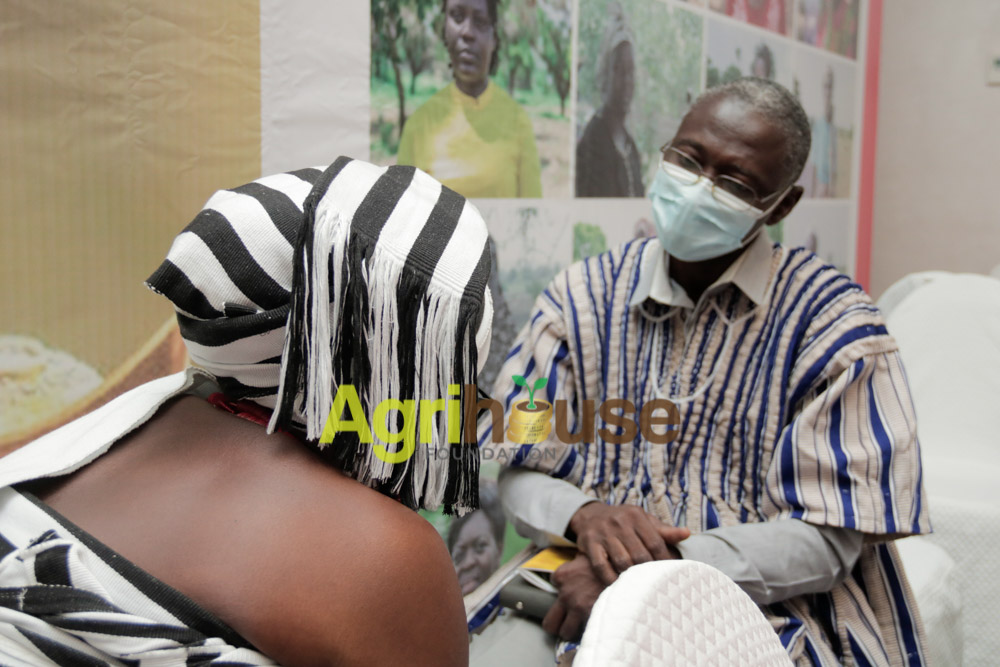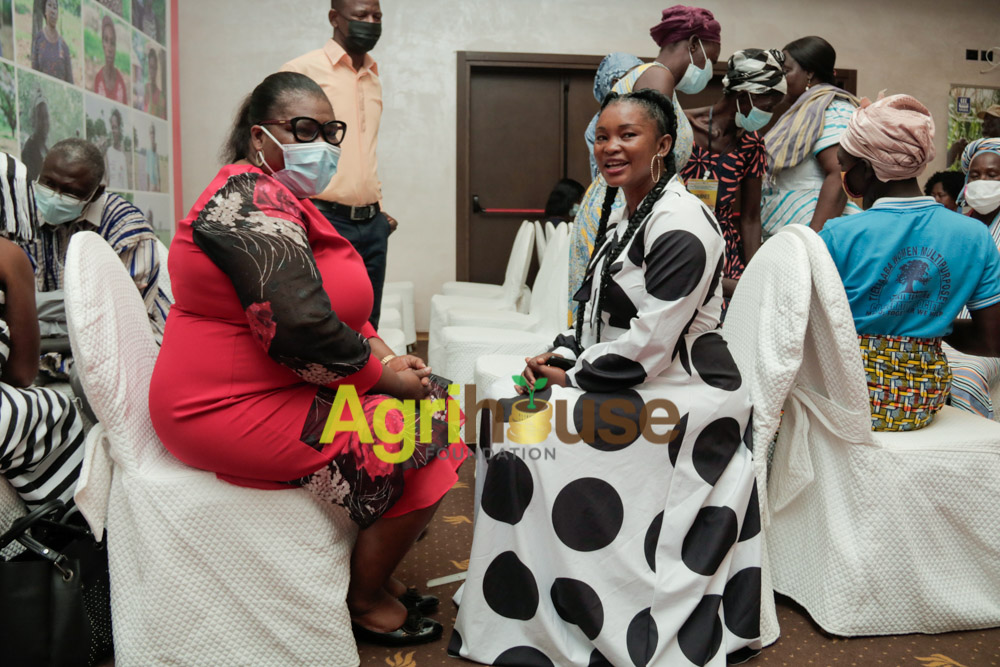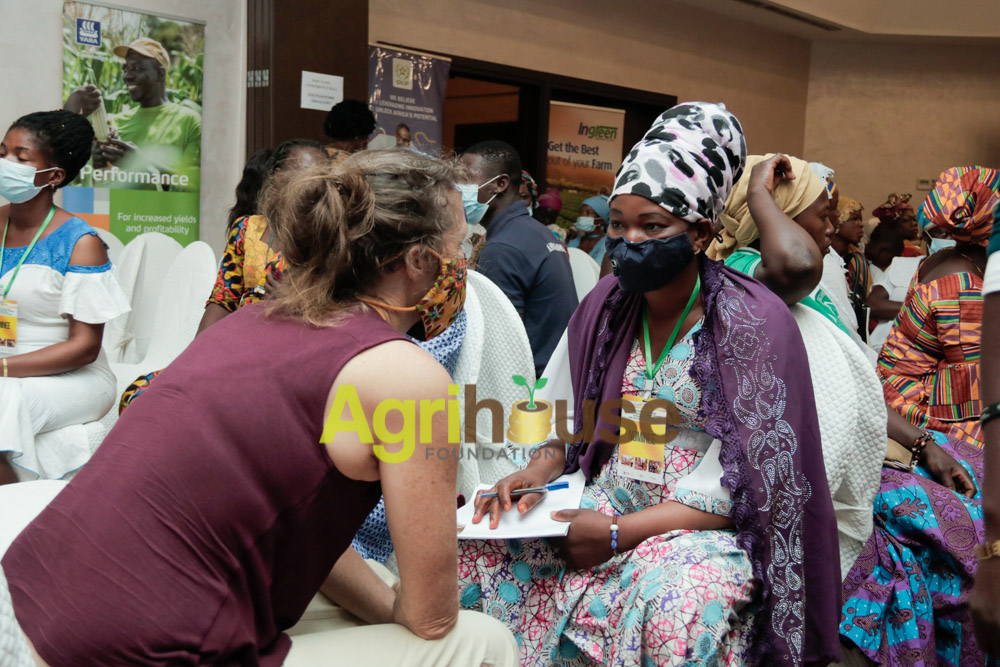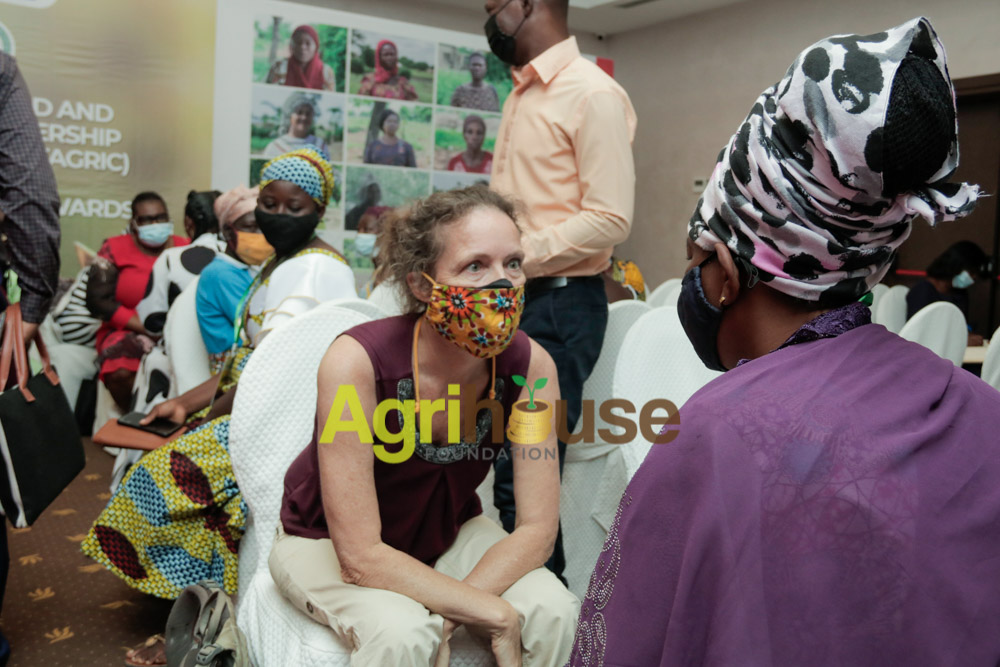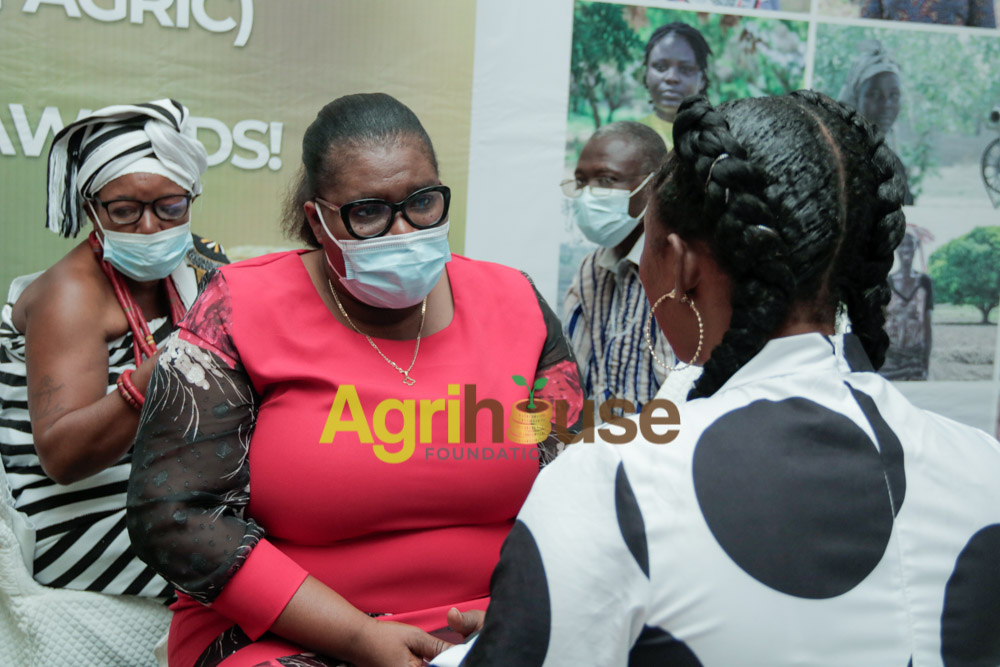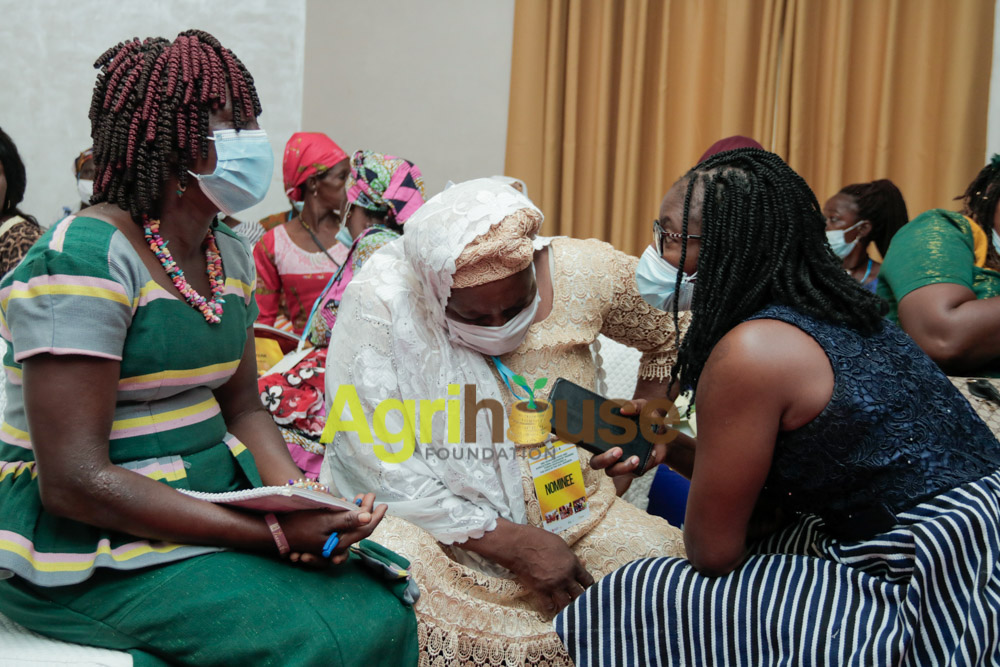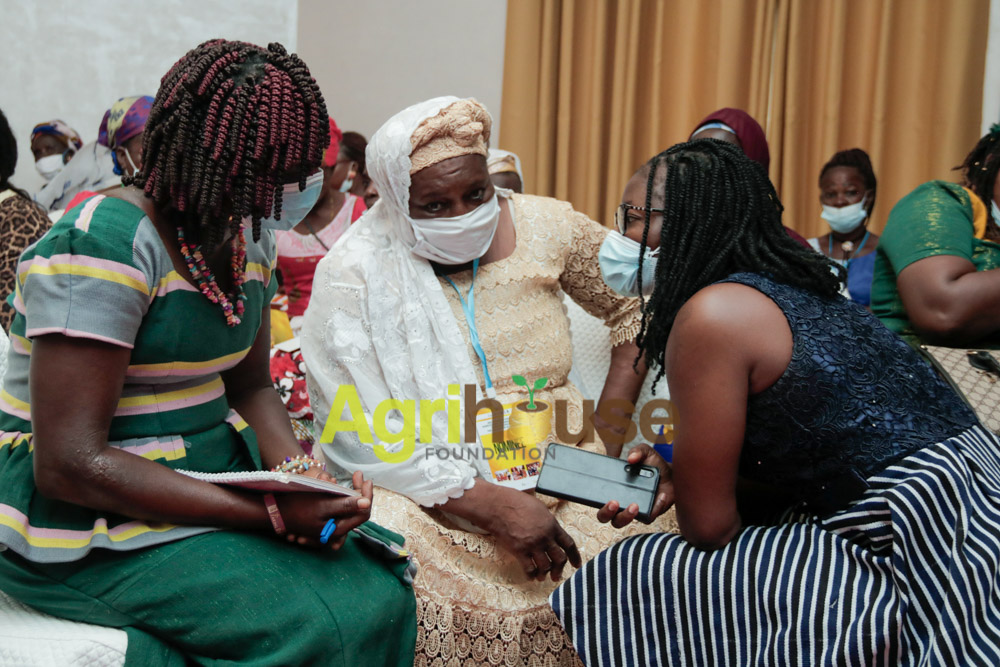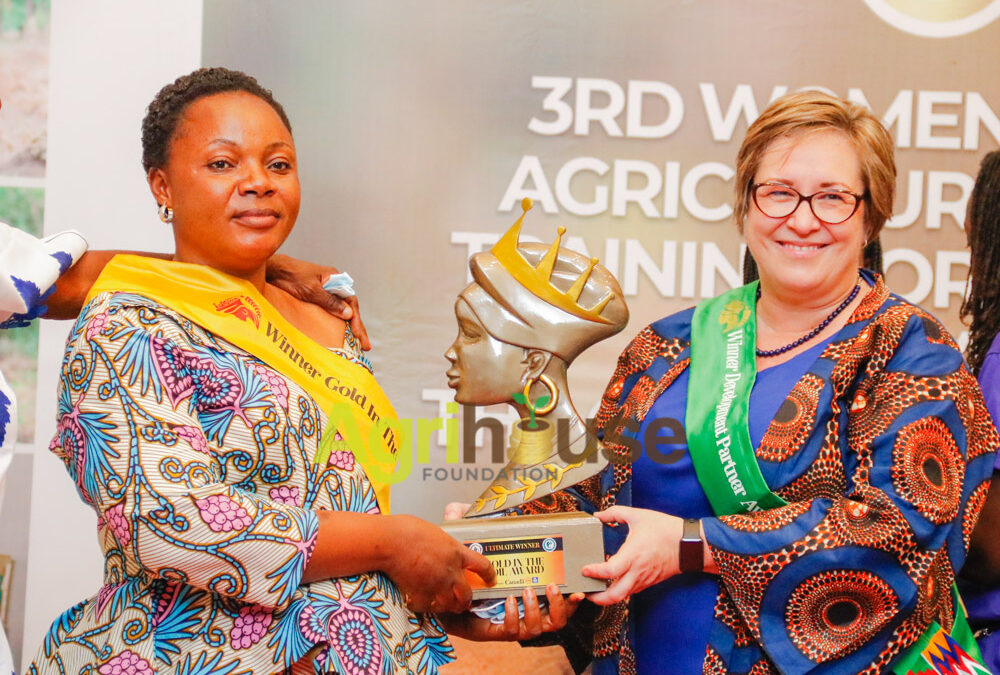
Canada Reiterates Commitment to Ghanaian Women in Agriculture at 3rd WOFAGRIC
The Deputy Director, Program Planning, at the Canadian High Commission, Corey Huntington, has reiterated Canada’s commitment towards empowering women in agriculture in Ghana.
She said it is the reason Canada continues to support WOFAGRIC and Gold in the Soil Awards because the vision of the event strongly resonates with Canada’s Feminist International Assistance Policy, which aims to put women and girl’s front and centre of development.
“We strongly believe that women are critical to the sustainability of Ghana’s agriculture and that successful women farmers deserved to be recognized and celebrated for their achievements and contributions to the nation,” she stressed.
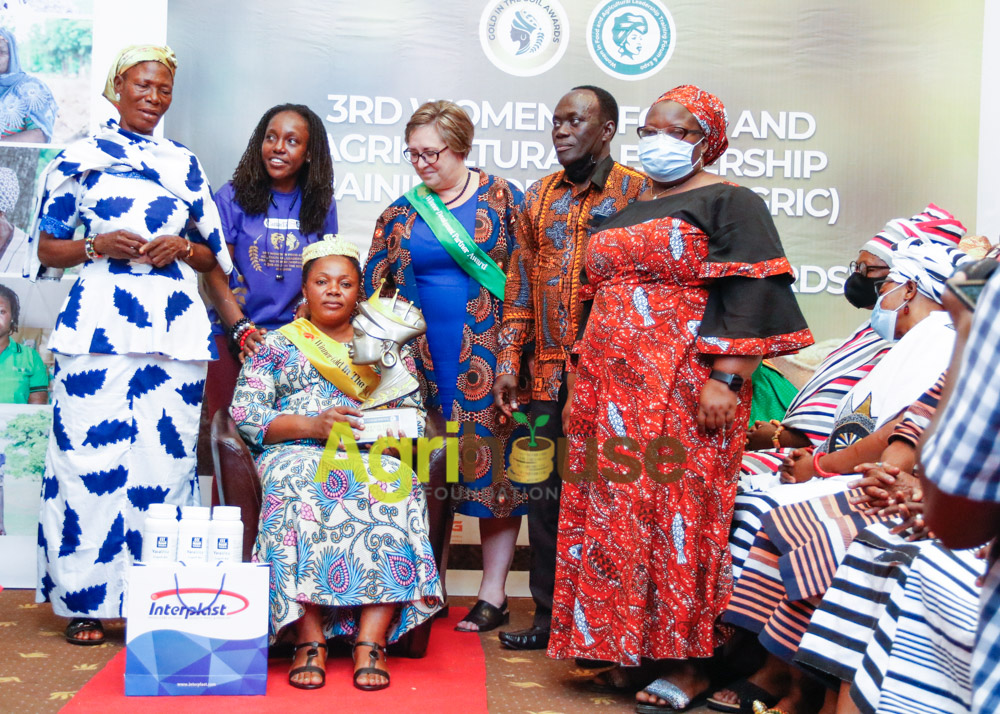
In a short presentation at WOFAGRIC and Gold in the Soil Awards, she described the event as, “the right platform to highlight the successes of women farmers and demonstrate that, given equal opportunities, women farmers can contribute significantly to Ghana’s development agenda,” she underscored.
She therefore commended Agrihouse Foundation for providing an annul capacity building and networking opportunity through WOFAGRIC, that helps to build resilience of women farmers— this year, focusing on agri-women in the Upper East and Upper West regions.
Modernizing Agriculture in Ghana (MAG) Project Powered by Canada
Since 2017, Canada has been providing support to the Government of Ghana to improve its agriculture sector through an initiative called Modernizing Agriculture in Ghana (MAG). Canada recognises that the agriculture sector continues to hold great potential for reducing poverty and inequality in Ghana. In this light, Canada is providing 125 million Canadian dollars of assistance directly to the Government of Ghana to help modernize the sector.
The MAG project is now in the fifth year of implementation and tremendous successes are being recorded. These include increases in the adoption of relevant, productivity-enhancing technologies by both female and male farmers in Ghana, the introduction of new market-oriented approaches to farm management, improvements in major crops and many more.
A big focus of the MAG project has been to understand the specific needs of women farmers and to ensure that both female and male farmers are receiving the appropriate extension services to help them improve both their yields and their incomes.
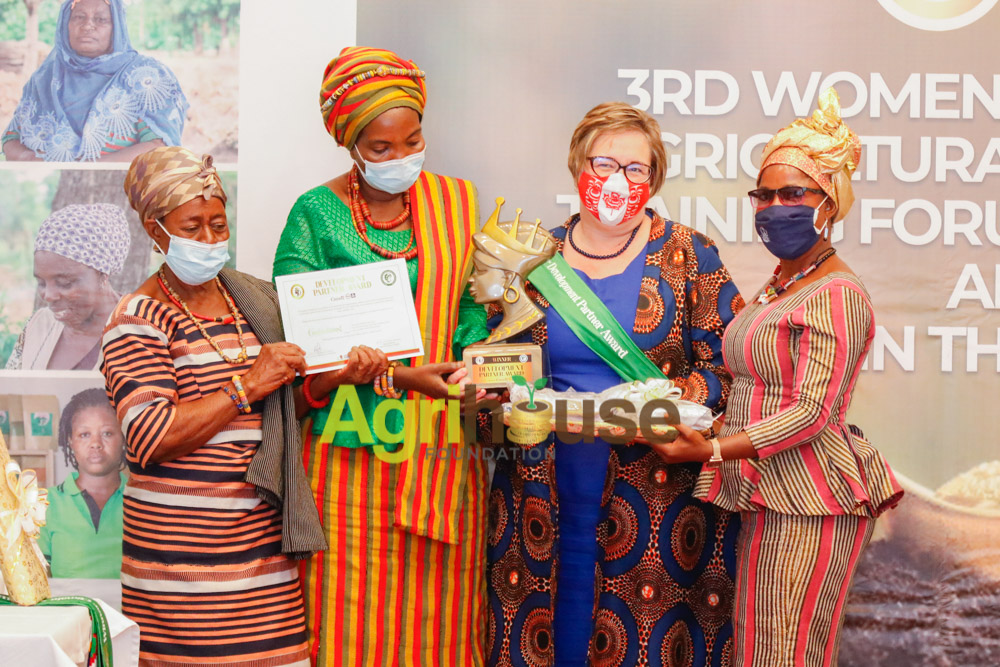
This is in line with Canada’s Feminist International Assistance policy and the UN Sustainable Development Goal 5 on Gender Equality. Through our partnerships with the Government of Ghana and organizations like the Agrihouse Foundation, we are witnessing increased empowerment and self-reliance among women in the agricultural sector.
Women farmers are demonstrating higher levels of financial autonomy. As a result, they are now able to buy land, add rooms to their homes, purchase agro-processing machines, expand their agro-processing activities, and pay school fees for their children.
About 3rd WOFAGRIC and Gold in the Soil Awards
This year Madam Portia Asumda, from Zangeyire in the Upper East Region took home the ultimate Gold in the Soil Award. She has been farming five years and is into the cultivation of rice, and maize, and rears cow, small ruminant and guinea fowls.
She has been working for the past 10 years and has helped train about 200 women in agri-processing capacities. She mentors women and employs a number of them who depend on the income they make to support their families. In view of her hard work, NBSSI collaborates with her as a service provider, ensuring that her products meet international standards, that enables her to export her products.
The rest of the award winners in their various categories are as follows:
Passion for Farm— Portia Gban
She innovates— Gafaratu Fuseini
Climate Smart Women Project— Memuna Abdul Rahaman
Outstanding woman in extension services— Leuzumah Rashida
The super Woman Farmer— Alima Wahabu
Royal Agro— Ayiesheitu Mahamadu Asaki
Diamond in the rough— Saantuma Sala
Feed to Foods— Genevive Akugu
Change Champion Award— Asieme Elsie Azelikumah
Development Partner— Canada
Lady of the Export Region— Anita Sutha
Star Woman Agripreneur— Mavis Alahire Aboko
She operates— Joy okrah
Princess Carla— Hawawu Gbahara
Gold in the Soil— Portia Asumda
This year the Awards Scheme received 131 nominations from both Upper East and Upper West Region. Out of the number, 45 women were shortlisted and 14 awarded. A special Gold in the Soil award went to Canada as a development partner.
This year WOFAGRIC and Gold in the soil Award was in partnership with Canadian High Commission, ABSA Ghana and YARA, INTERPLAST, OCP AFRICA, PEG AFRICA, LUMINANT ELECTRICALS AND RDF GHANA.
Collaborating Institution included, the Ministry of Food and Agriculture (MOFA), Women in Agriculture Development (WIAD) and the National Farmers and Fishermen Award Winners Association (NFFAWAG).
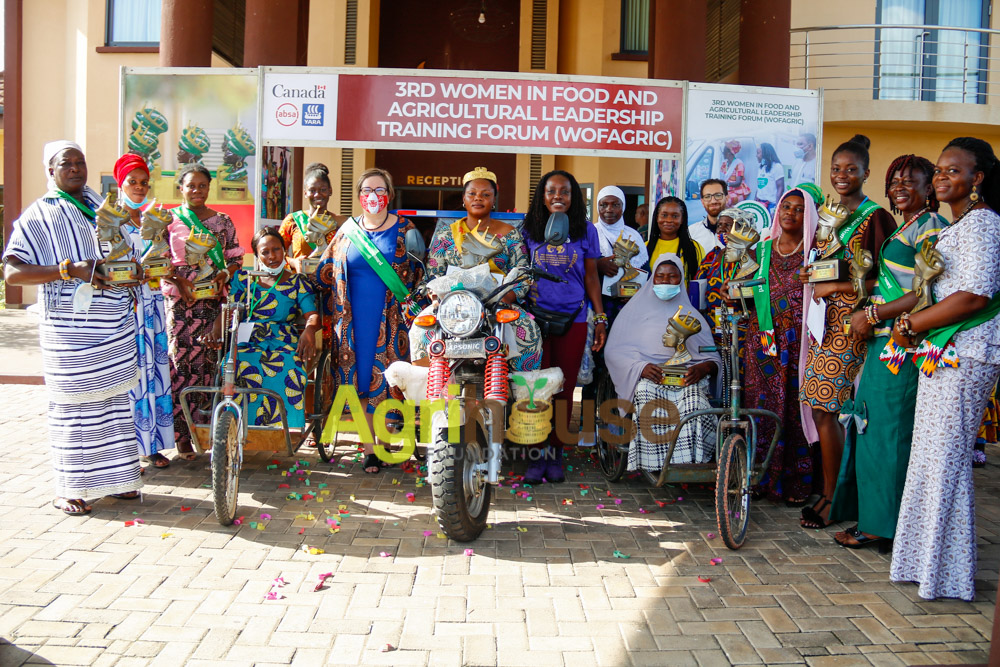
The GOLD In the Soil AWARDS, is an annual awards scheme, solely dedicated to contribute in strengthening and projecting a paradigm shift of celebrating women farmers, processors, marketers and women who are playing a role within the agricultural value chain, including women into Transportation, packaging, Technology, input dealers, etc. The Awards moves from Region to Region yearly to search for these extraordinary women who contribute significantly to putting food on our tables daily. Their story is shared and broadcasted through a documentary series produced by Agrihouse Foundation.
Impacts of WOFAGRIC and Gold in the soil Awards
Since inception three years (3) ago, WOFAGRIC and Gold in the soil awards has impacted the lives and businesses of women in the agri-business space. So far 25% of women participants who were not into Agribusiness as at the time they attended the event, have now ventured into agribusiness. Similarly, about 900 women who were groomed to take up leadership roles have had their capacity built up to push for growth and expansion at the grassroots.
In 2019, almost a quarter of the nominees for the Gold in the Soil Awards made entries into the National Best Farmers Award Scheme at district, regional and national levels with about 7 of them winning laurels at the district and regional levels whilst 2 of them picked up awards at the National awards.
The training offered on proper management and book keeping have proven impactful. A follow up evaluation carried out 3 months after each event reveals that, past participants have been able to access loan facilities to support their farms and businesses. Furthermore, information and guidance provided by the Netherlands embassy and the Food and Drugs Authority (FDA) equipped some of the women farmers on the standard procedures, best practices and how to go documentations to export their produce. This has helped about 13 women to start the process to go into exportation.
